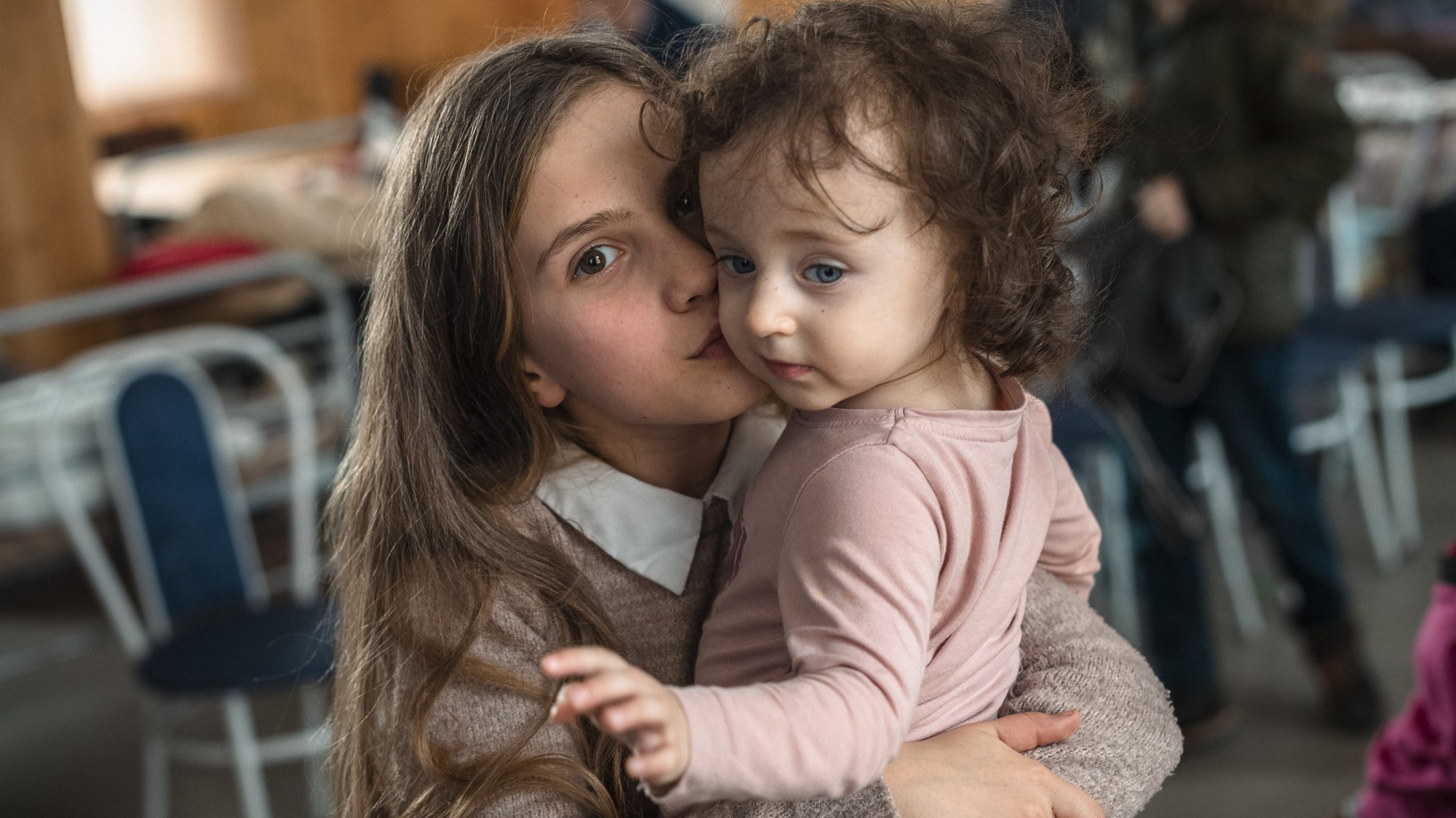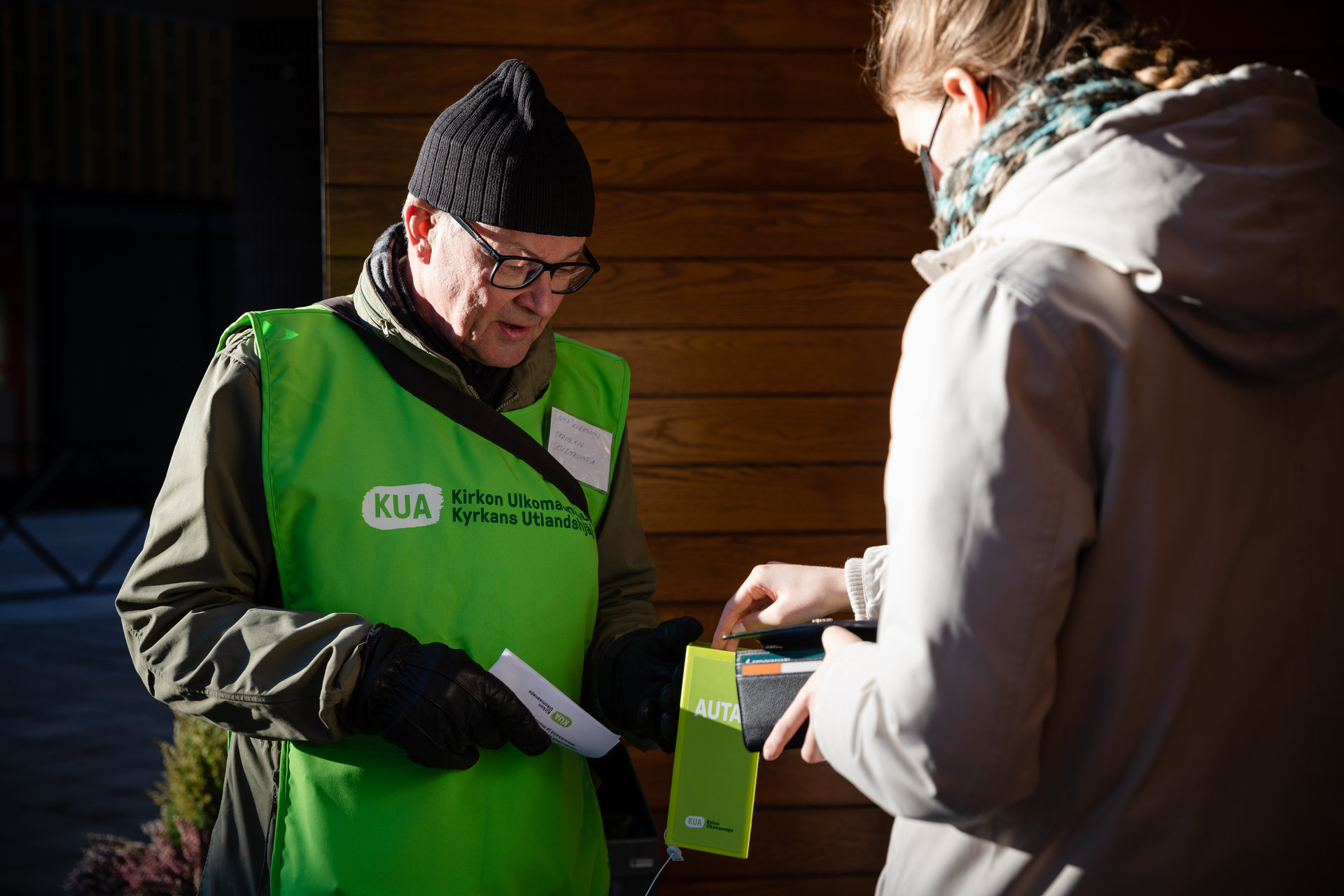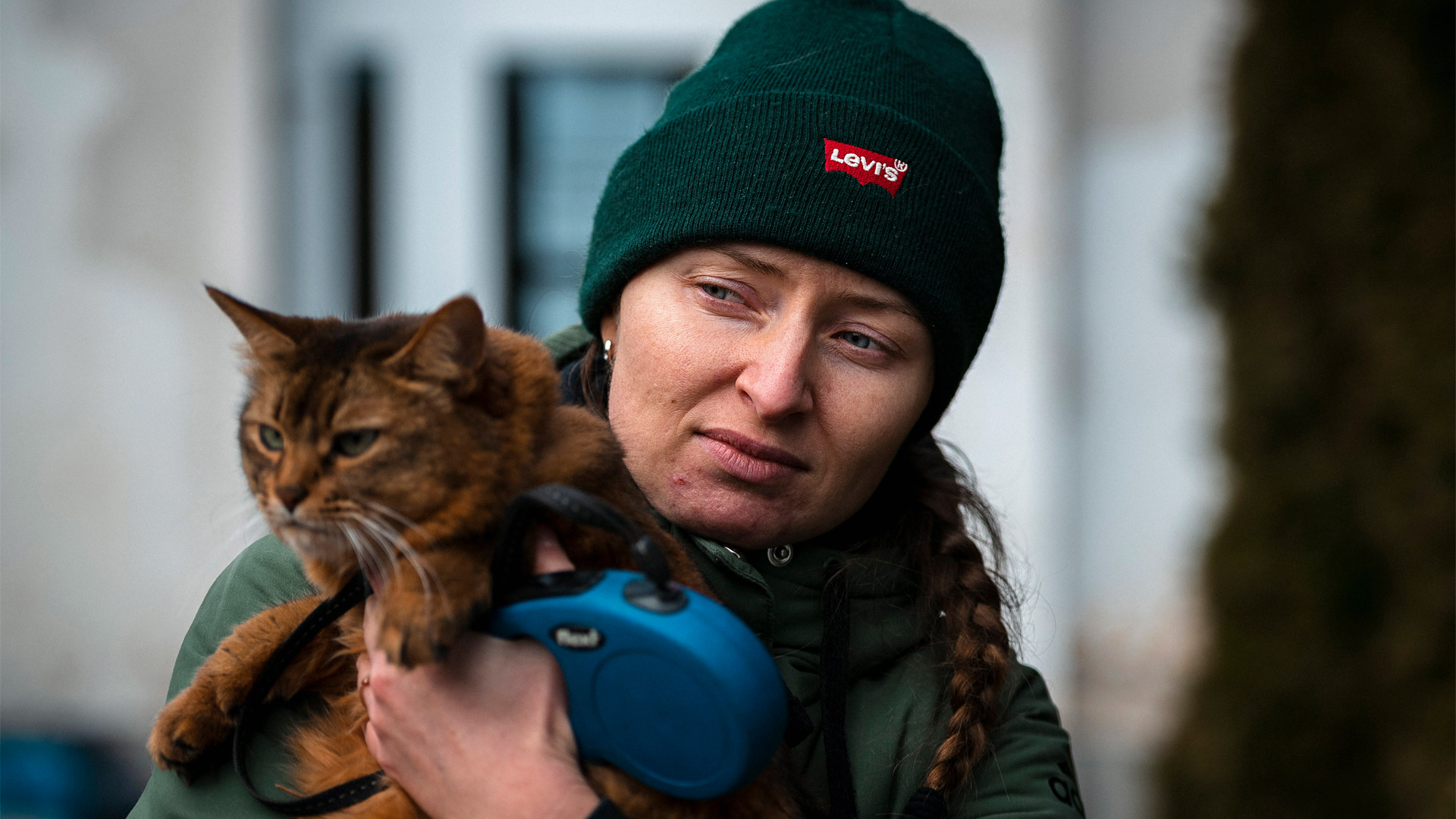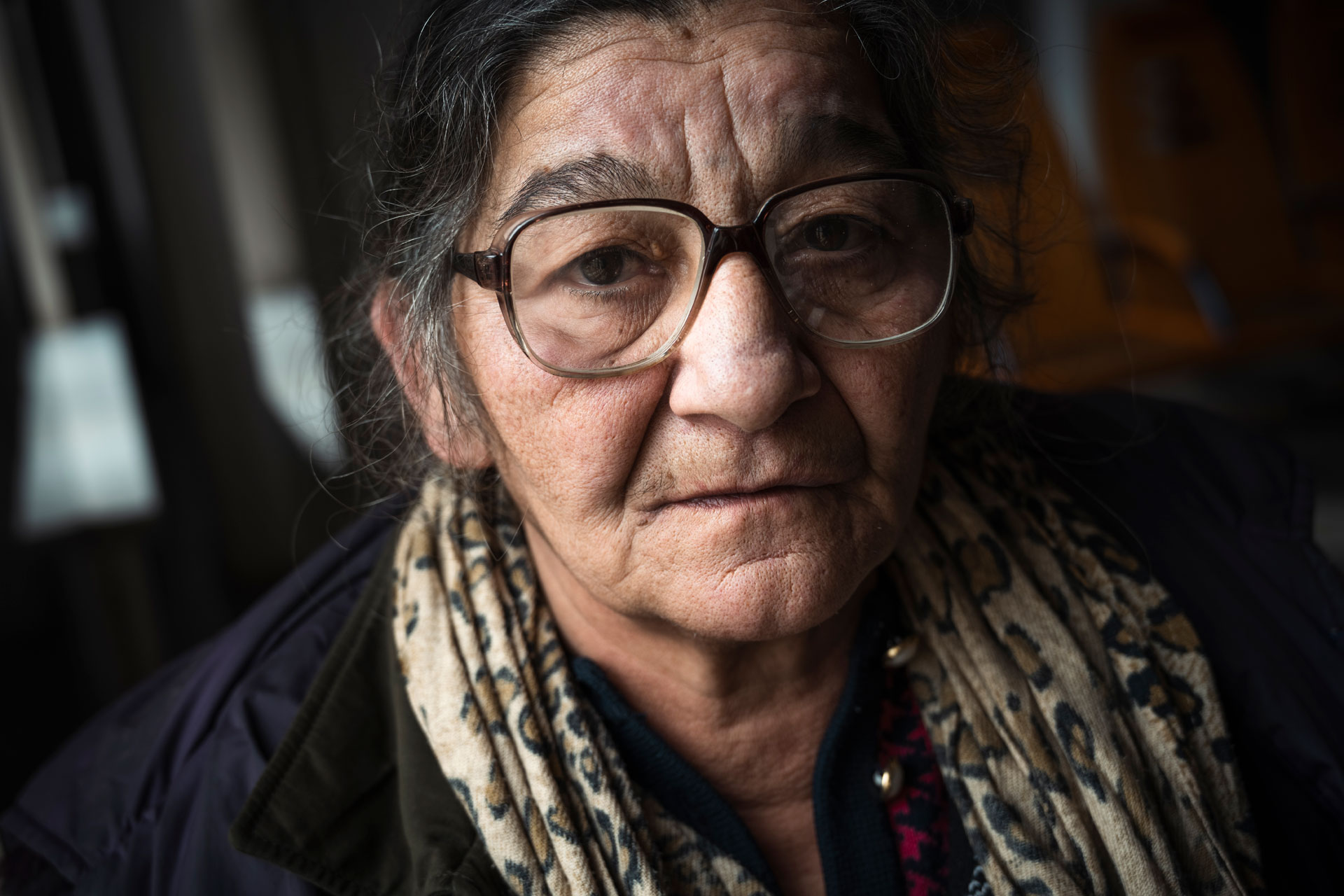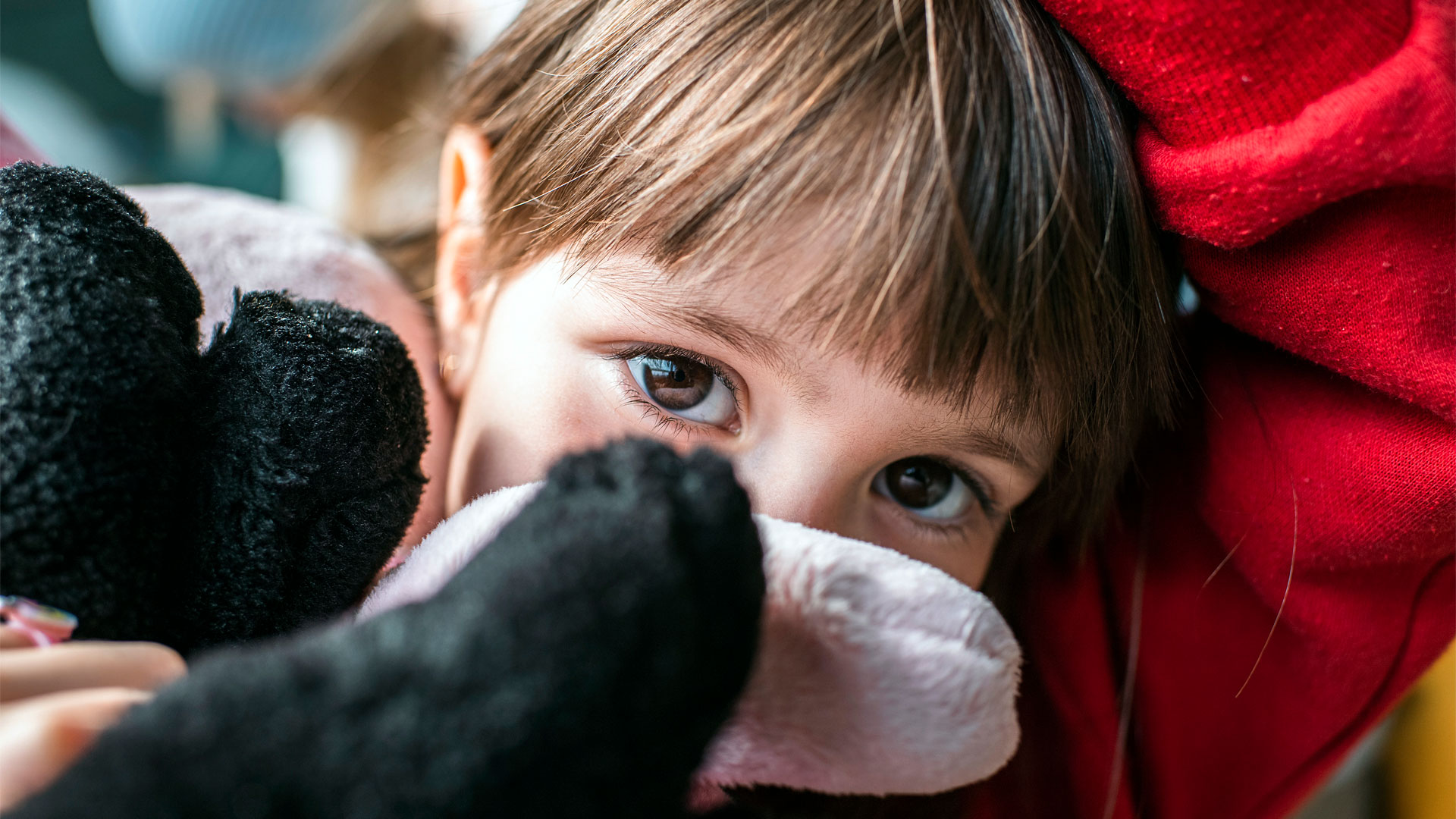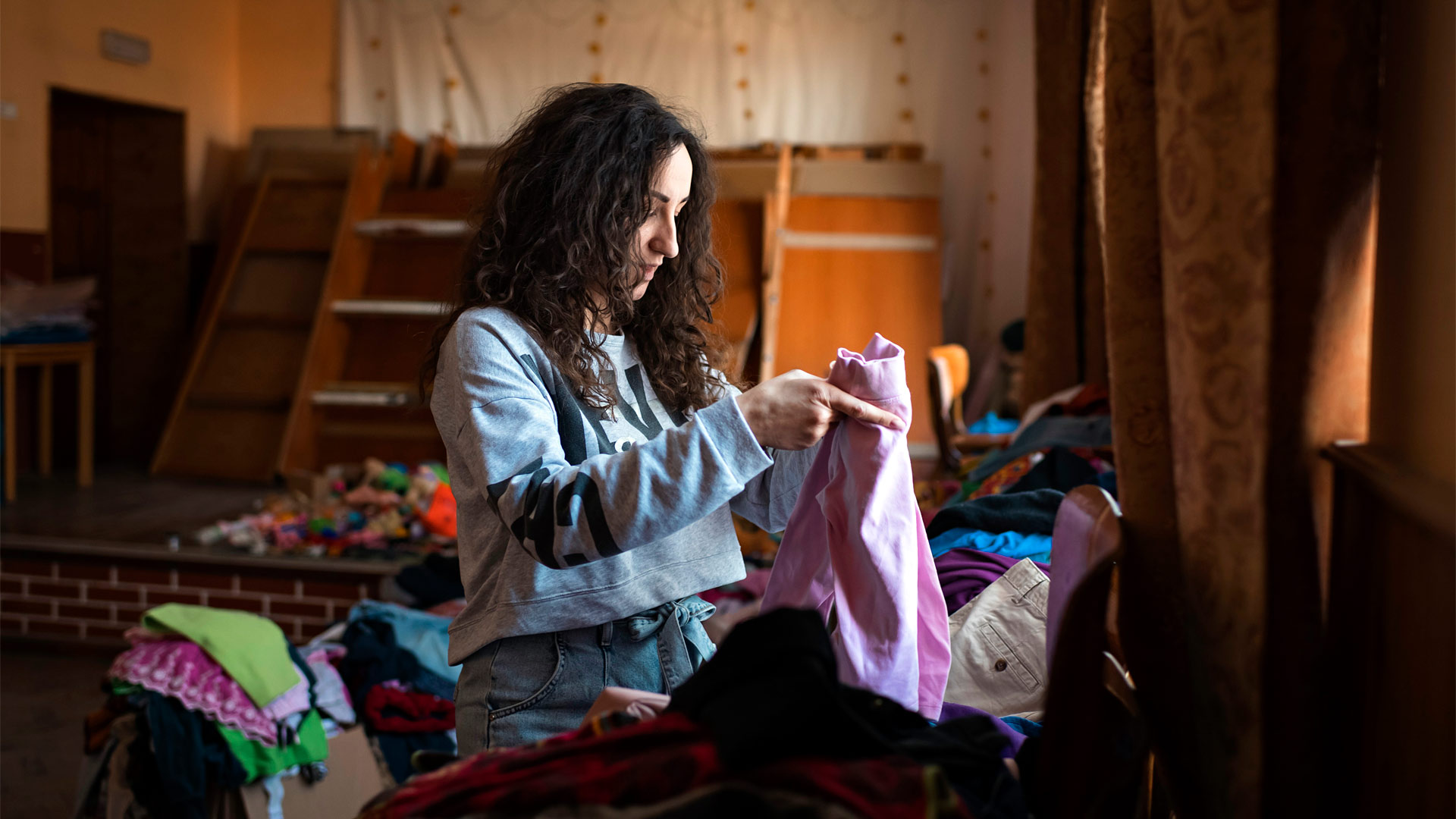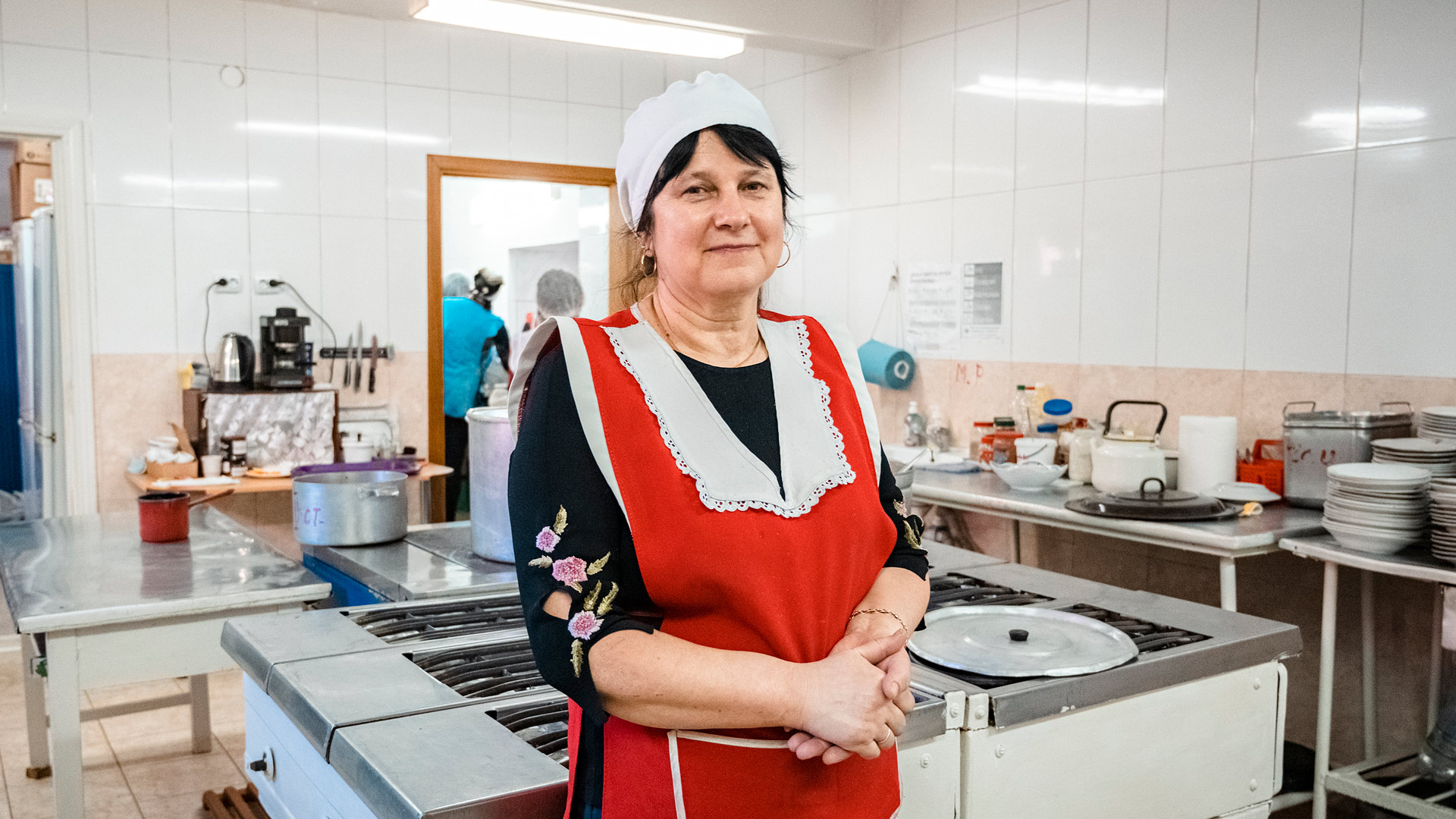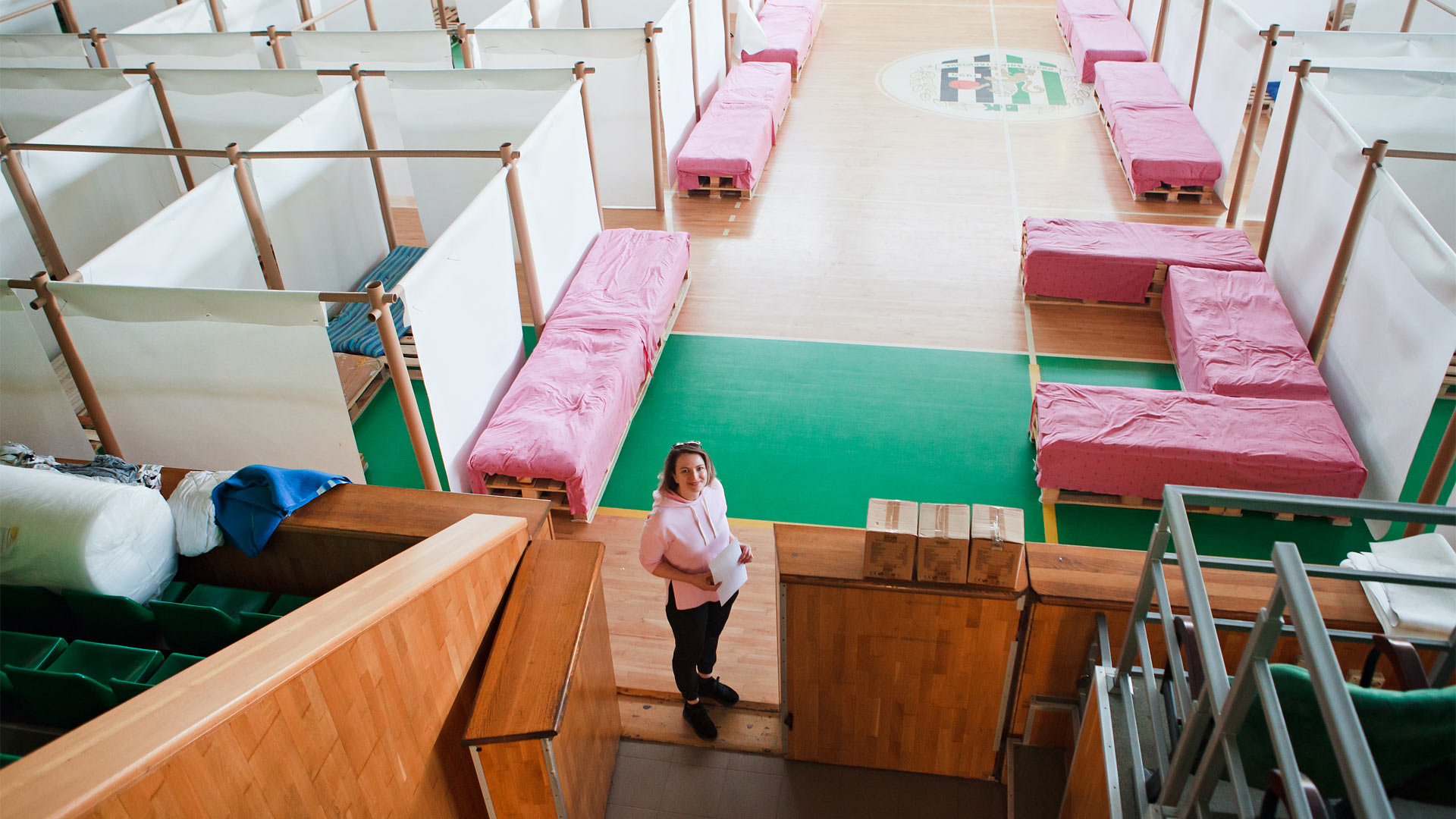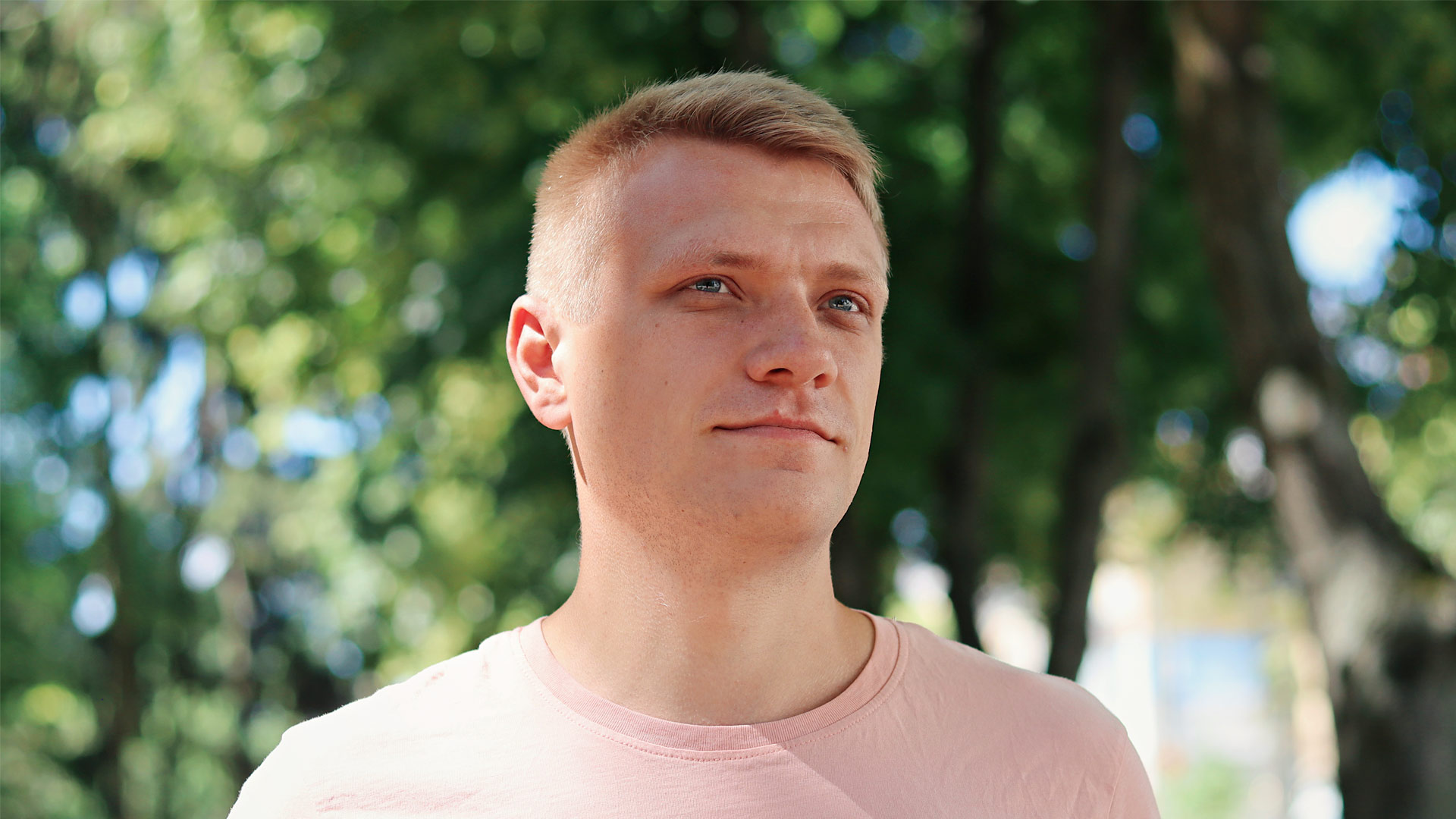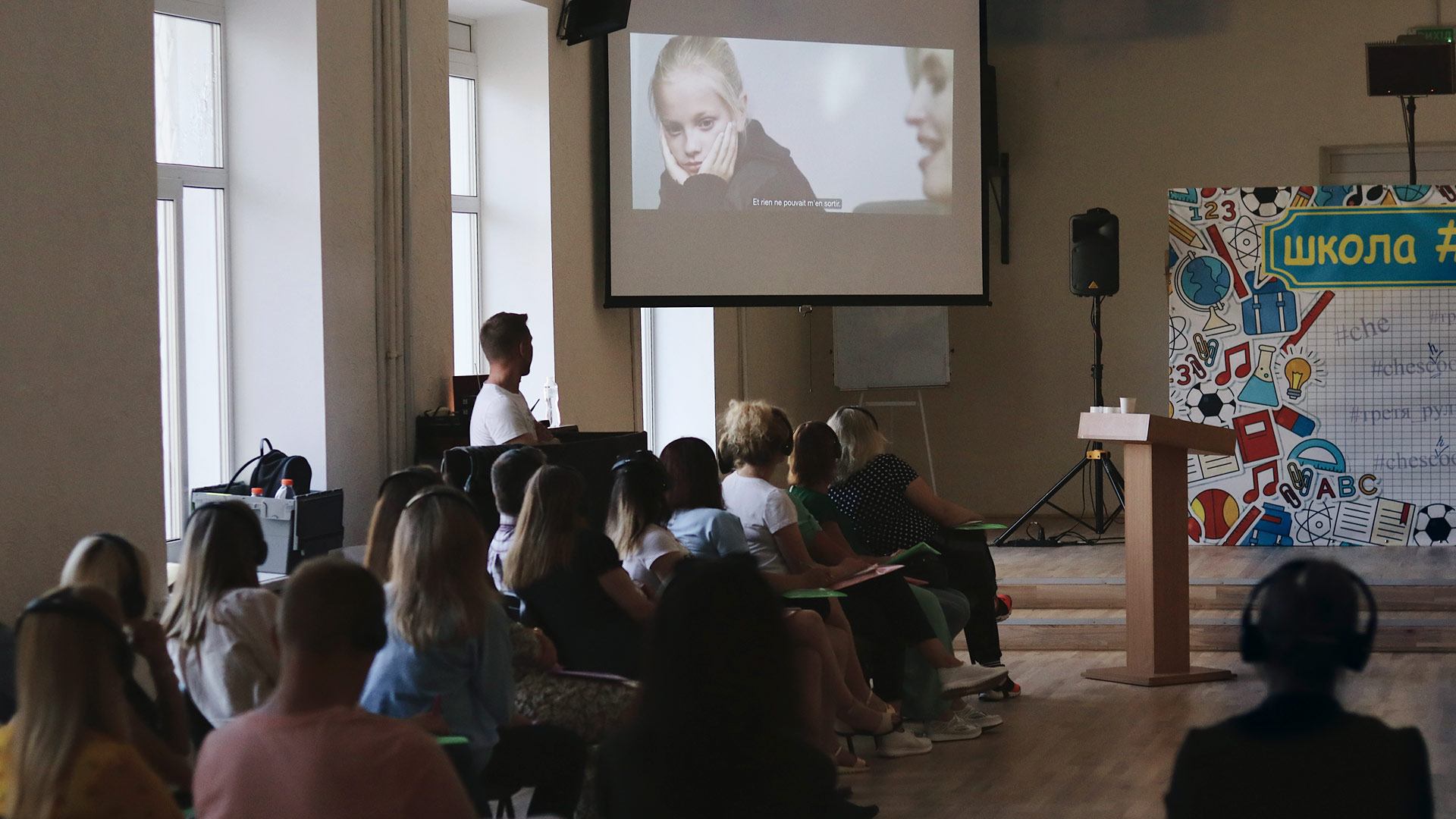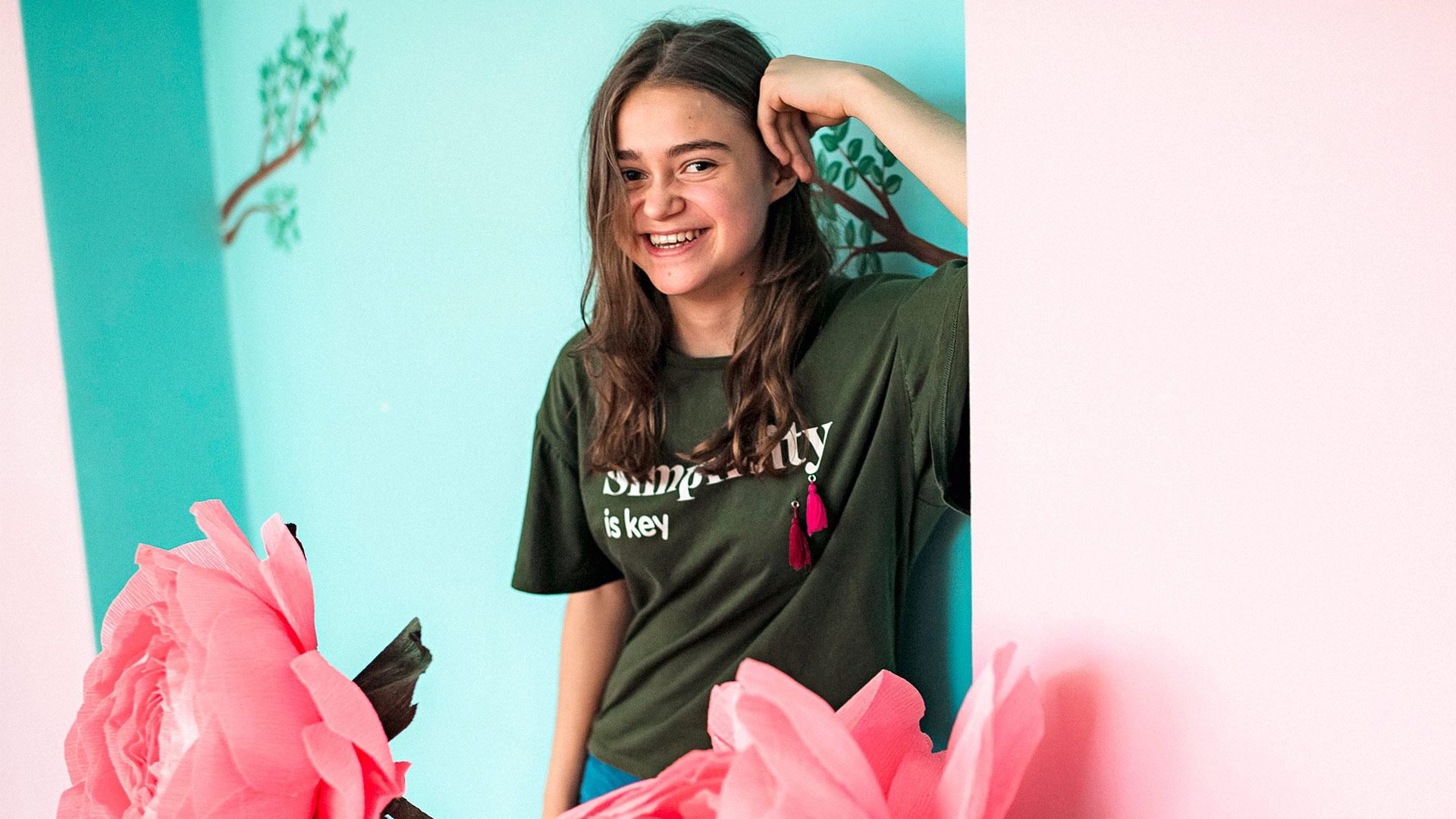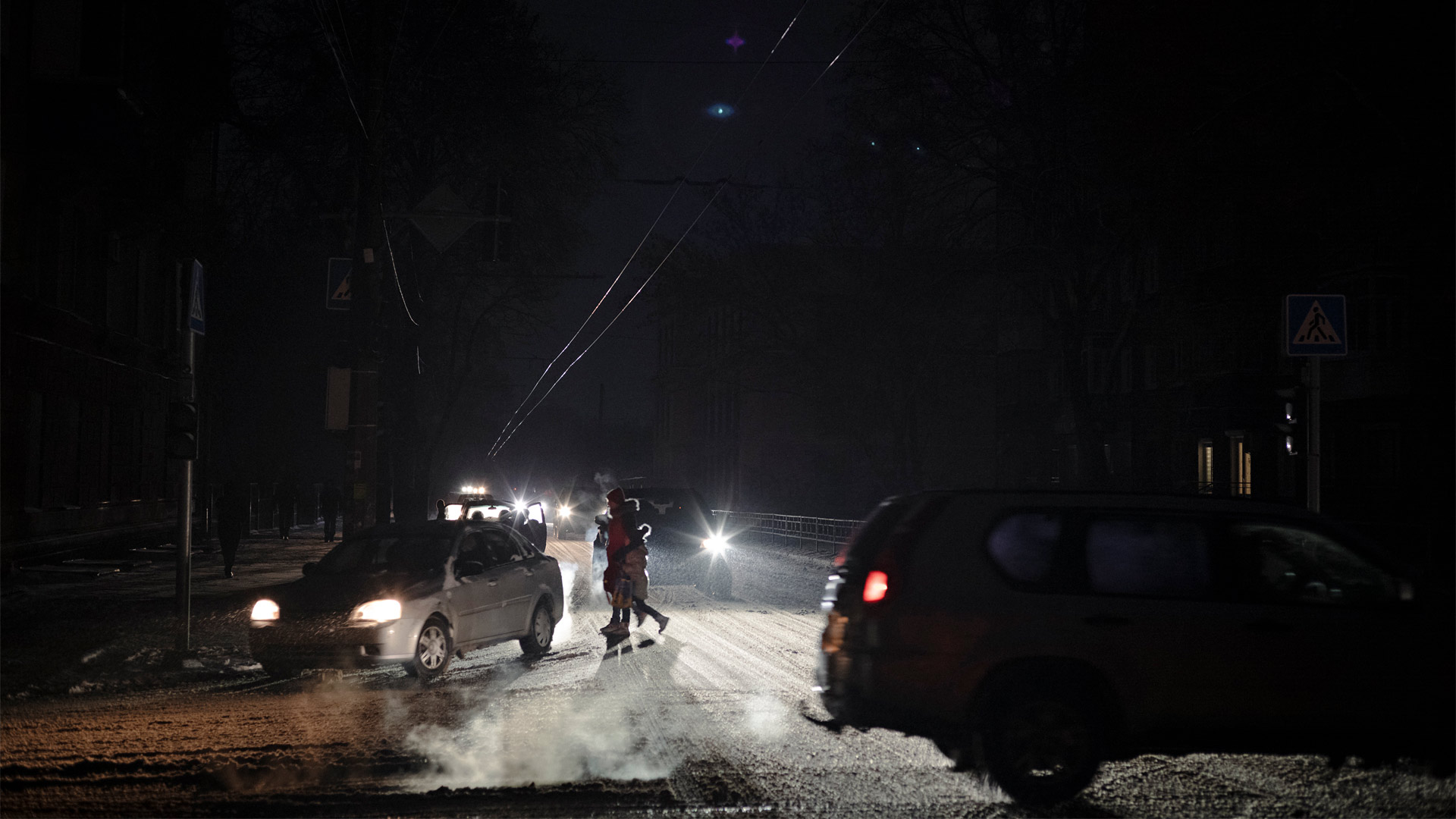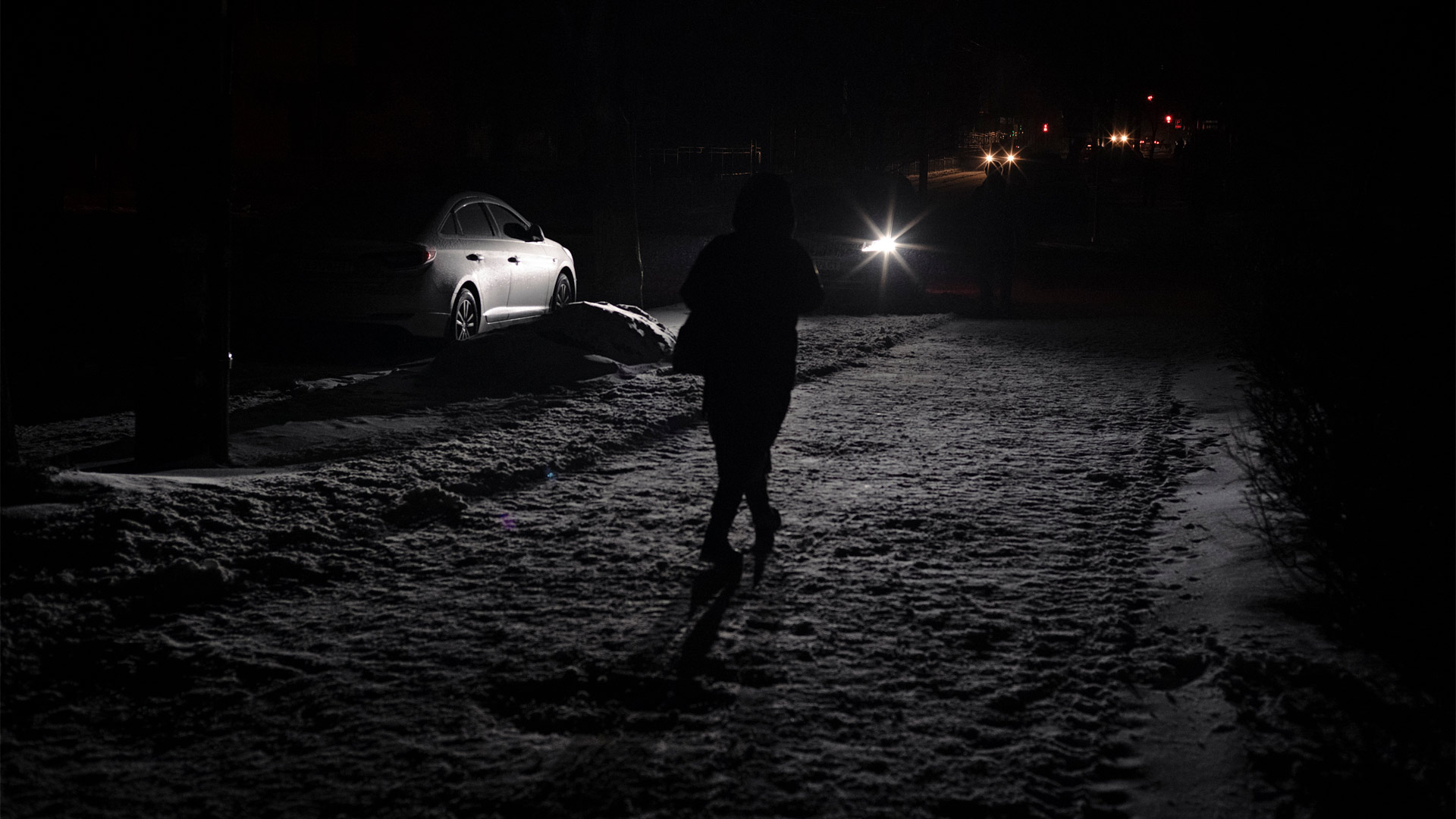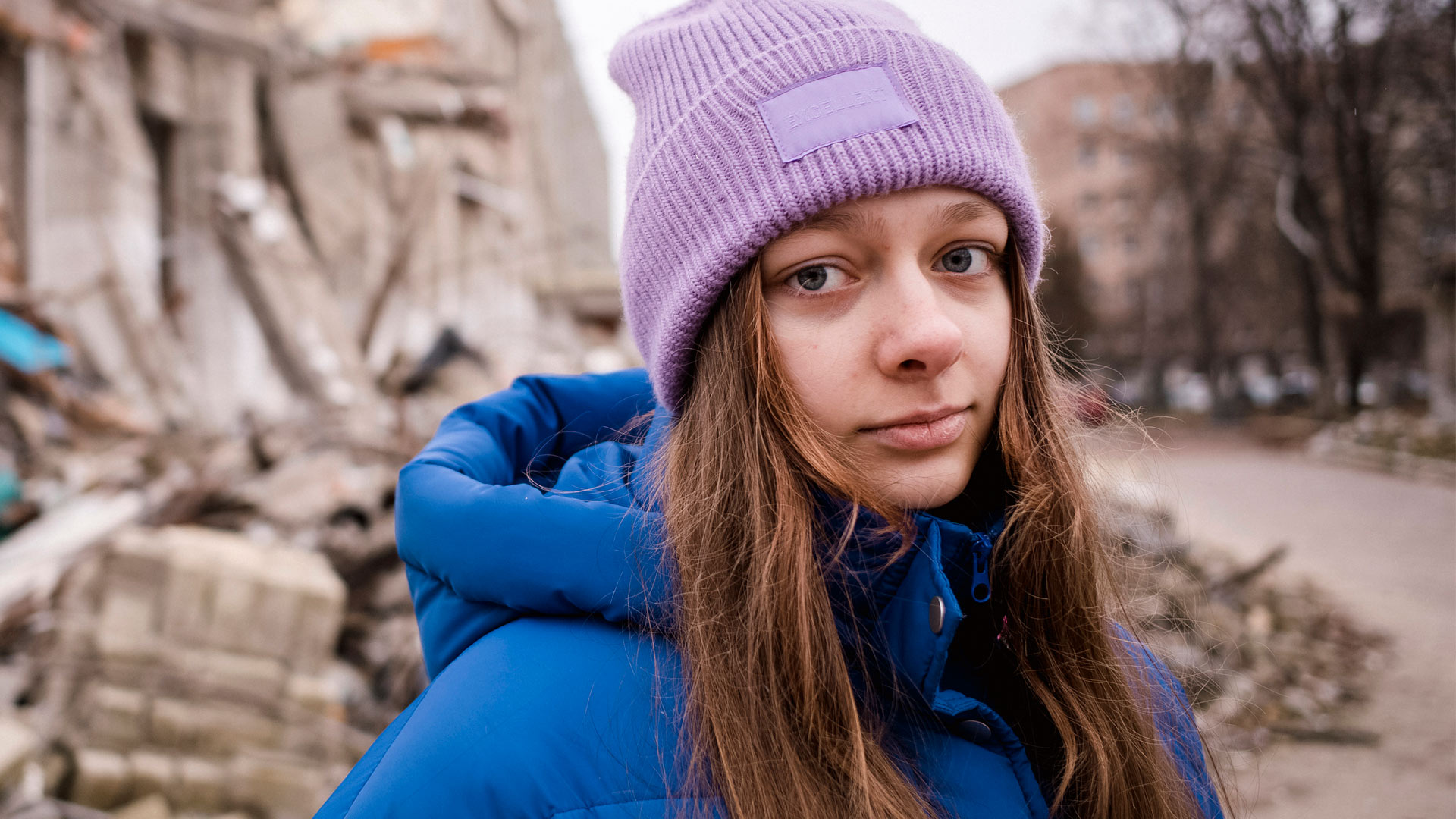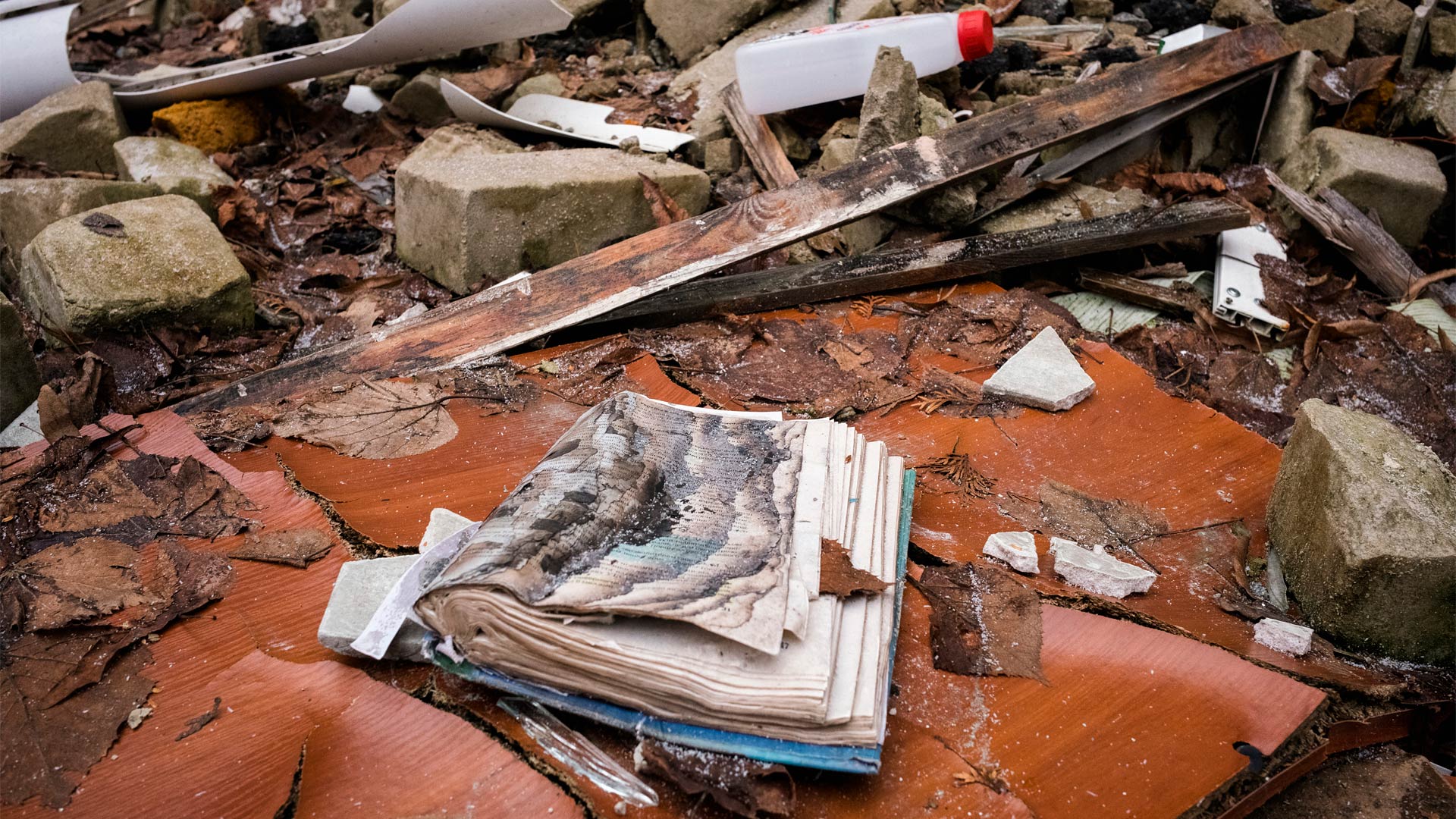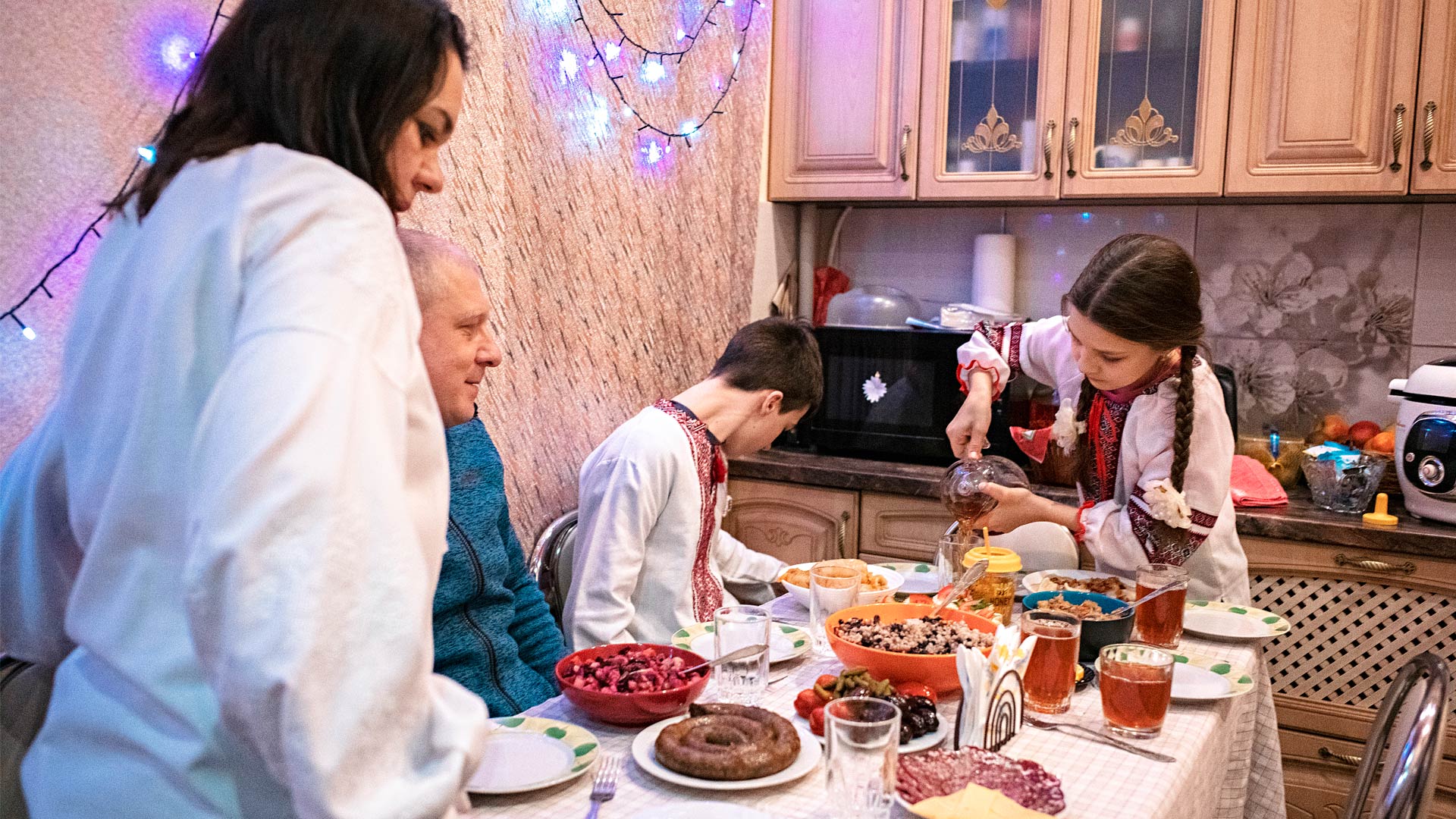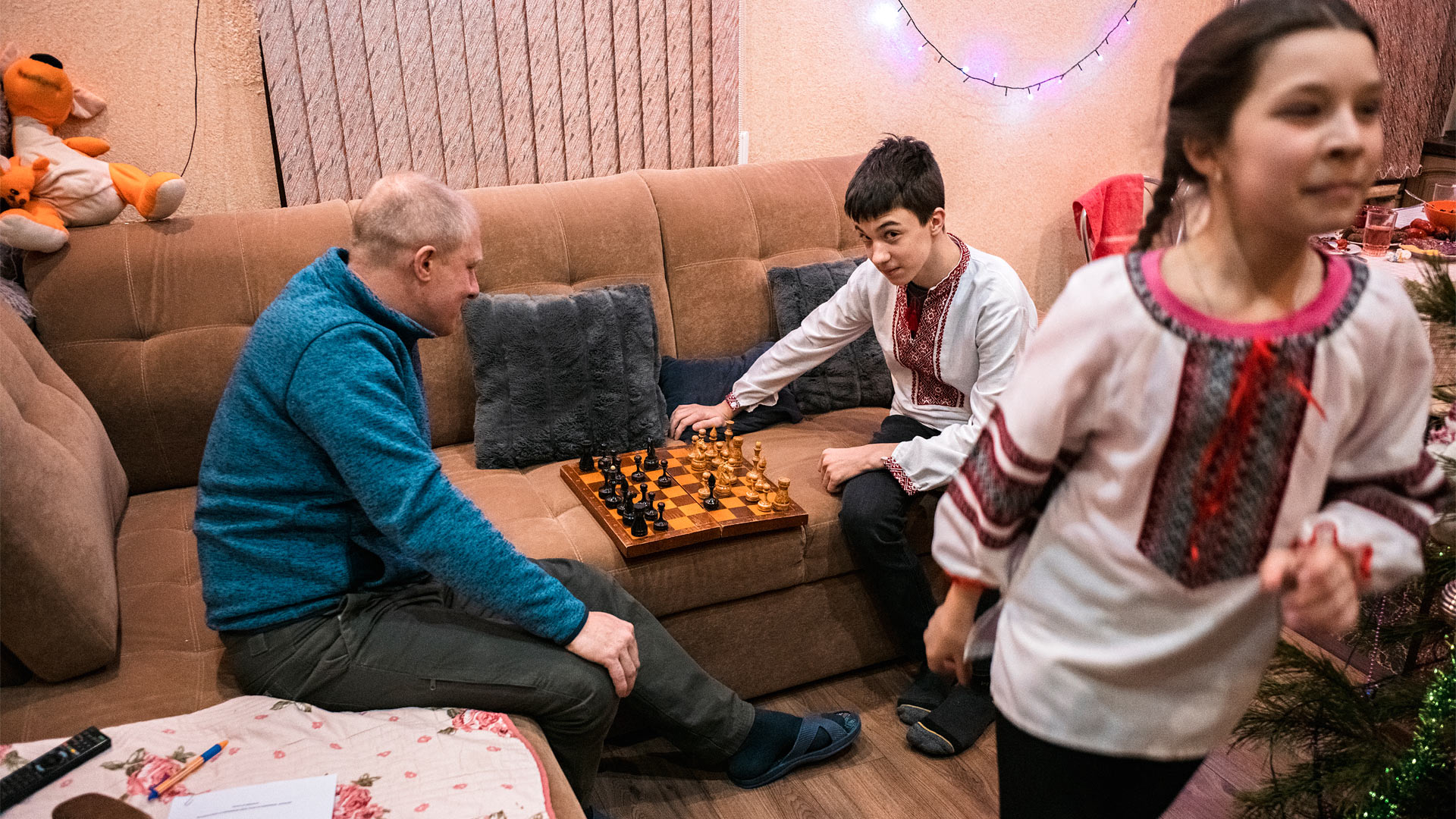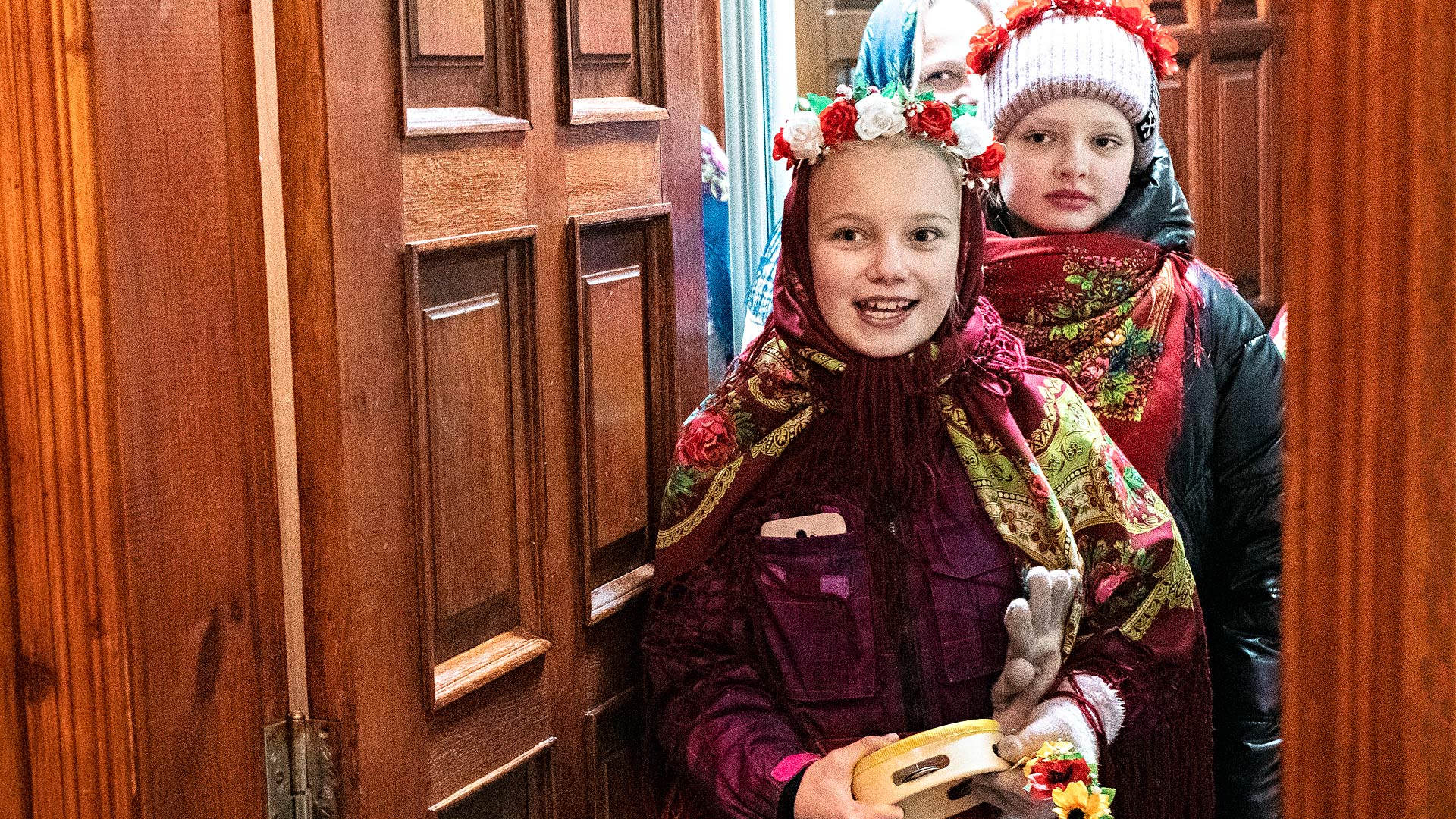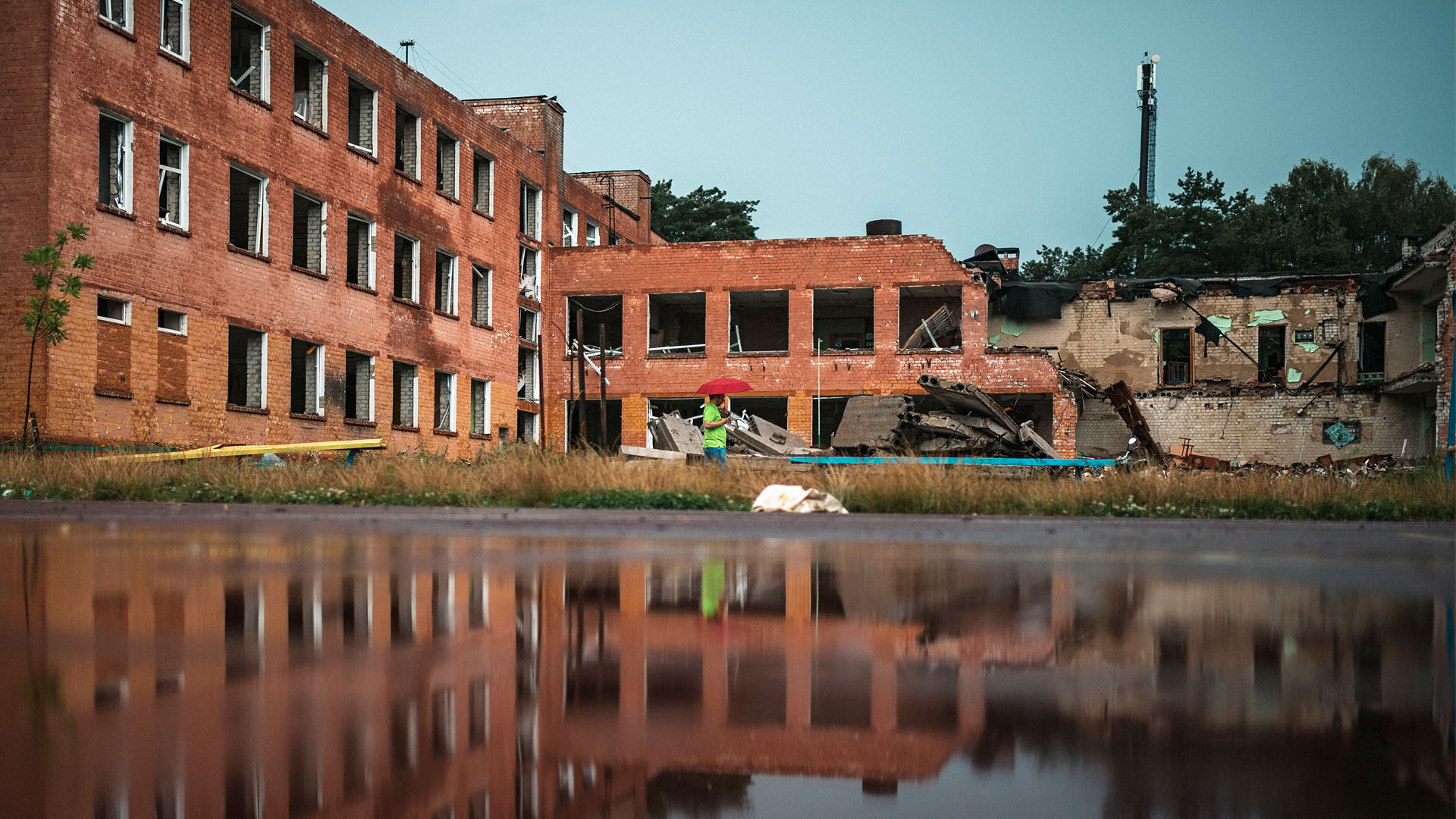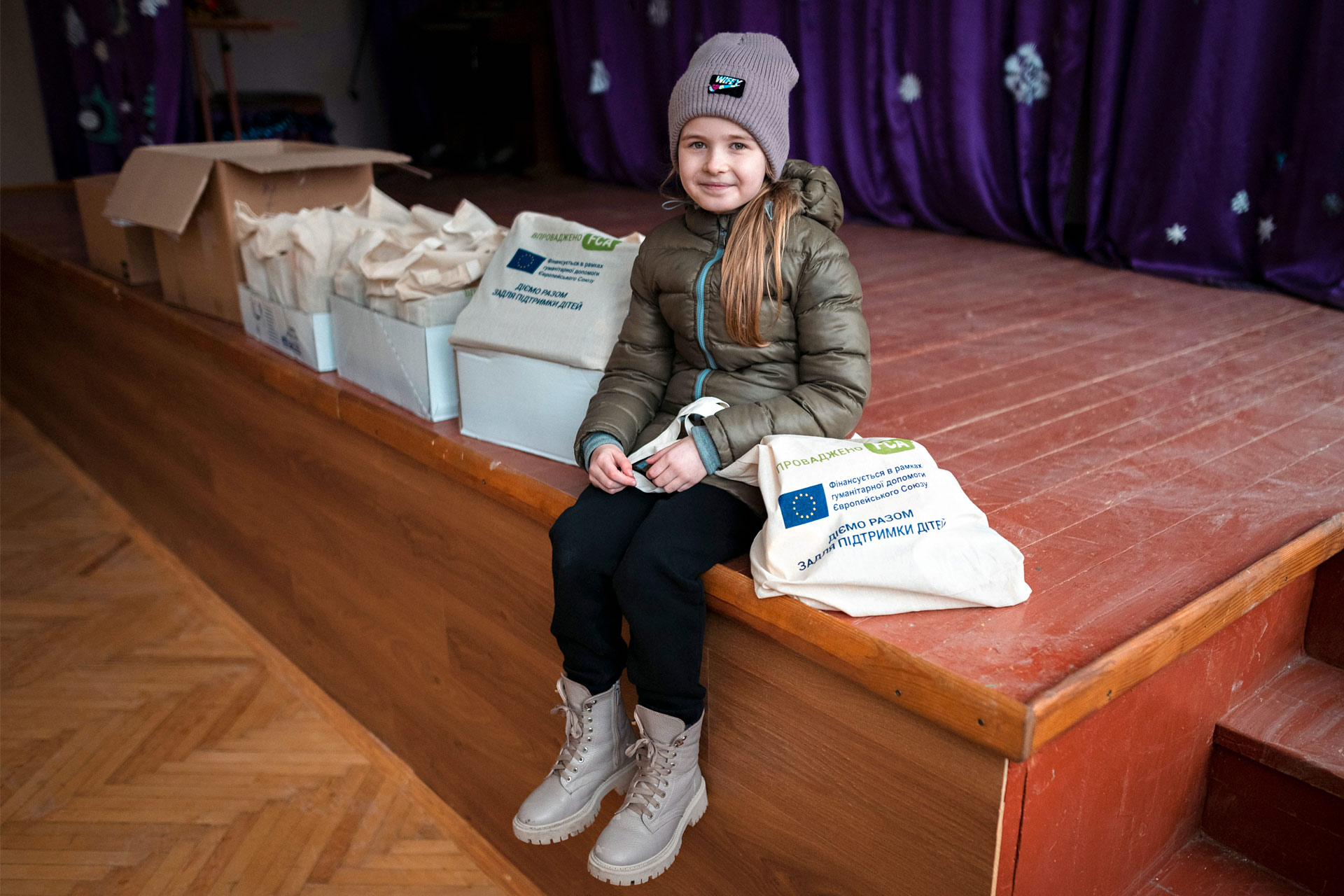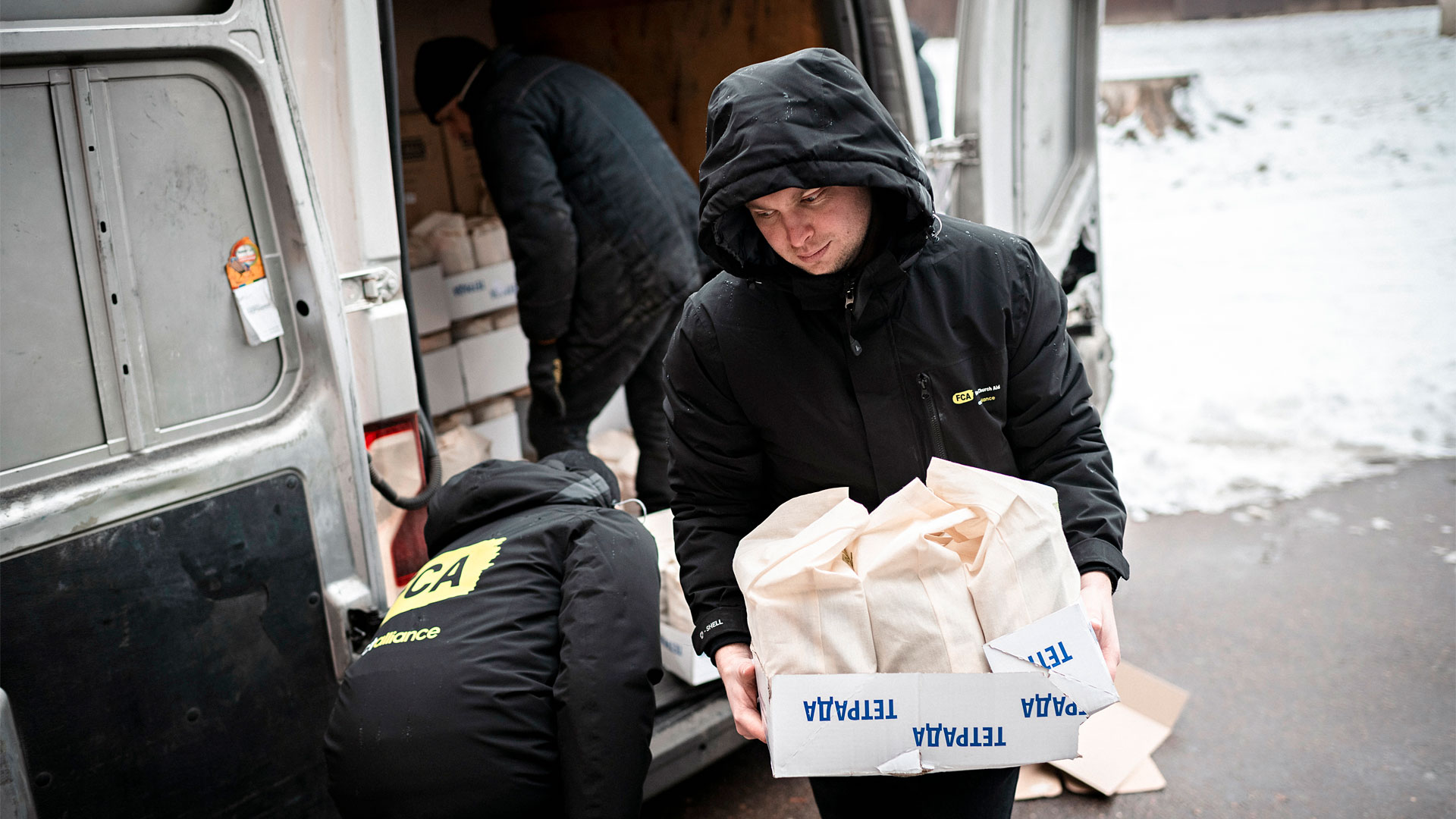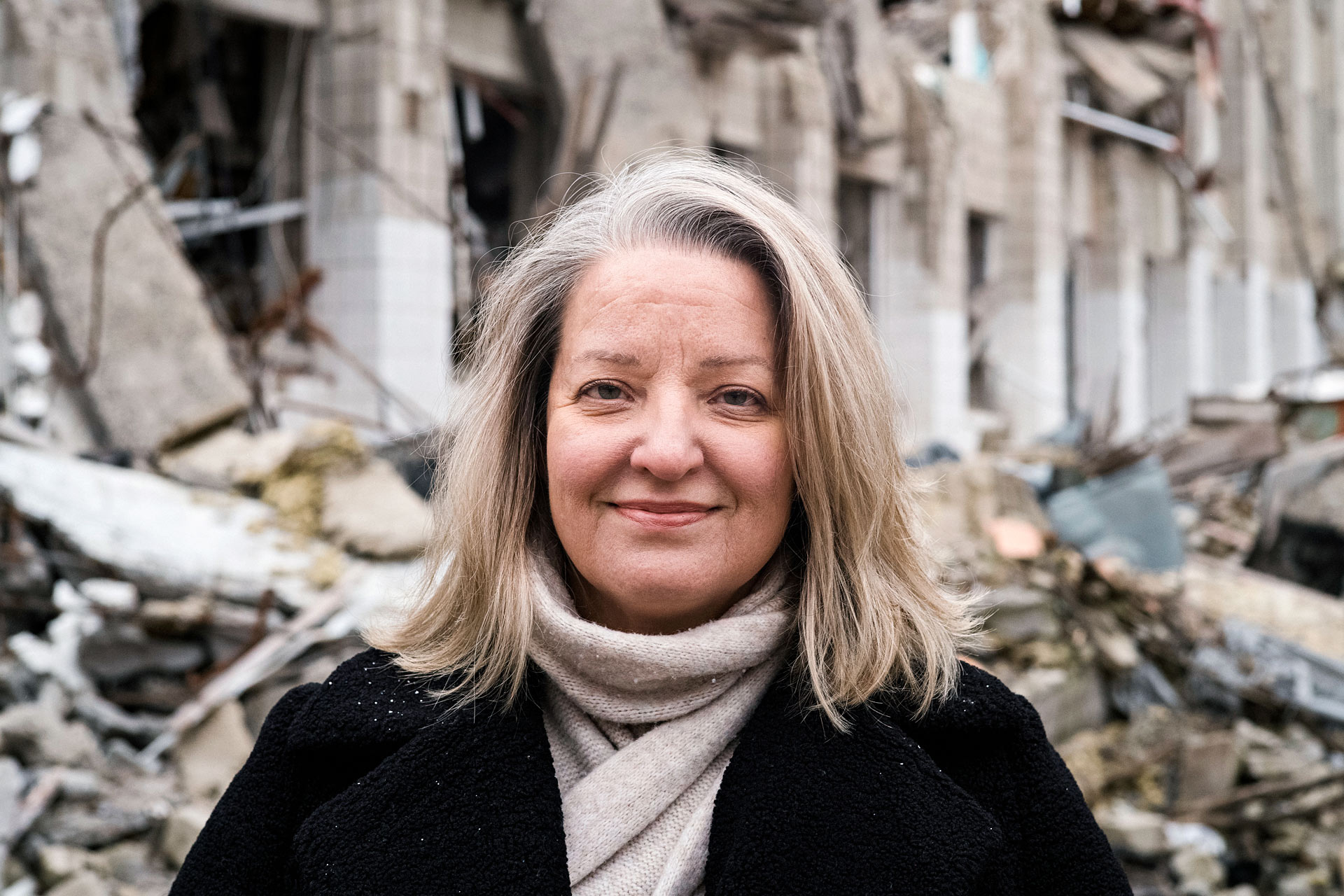Ukraine: One year of war
Ukraine: One year of a war that shattered lives and put millions in need
All photos unless indicated: Antti Yrjönen
On 24 February 2022 the world changed for Ukrainians. After Russia’s invasion, millions of people became refugees, displaced within and without the borders of their country. Children were especially affected with schooling interrupted and families often split up.
SINCE THE very start of the war, FCA has supported Ukrainians with humanitarian aid, working with our partners. Now, we are heading a multi-million euro project to make sure children can continue to access quality education safely, whether in Ukraine or elsewhere. This is the story of Ukraine and FCA in the past year.

Phase 1 – people on the move
After Russia invades Ukraine, many people are forced to flee their homes leaving most of their belongings behind. Most are women and children. Not knowing where they are going or for how long, and often forced to leave fathers, brothers and grandfathers behind, the stress on people is huge.
FCA WORKS with partner organisation, Hungarian Interchurch Aid (HIA) to provide food, warm clothes, hygiene items and places to rest along the way.
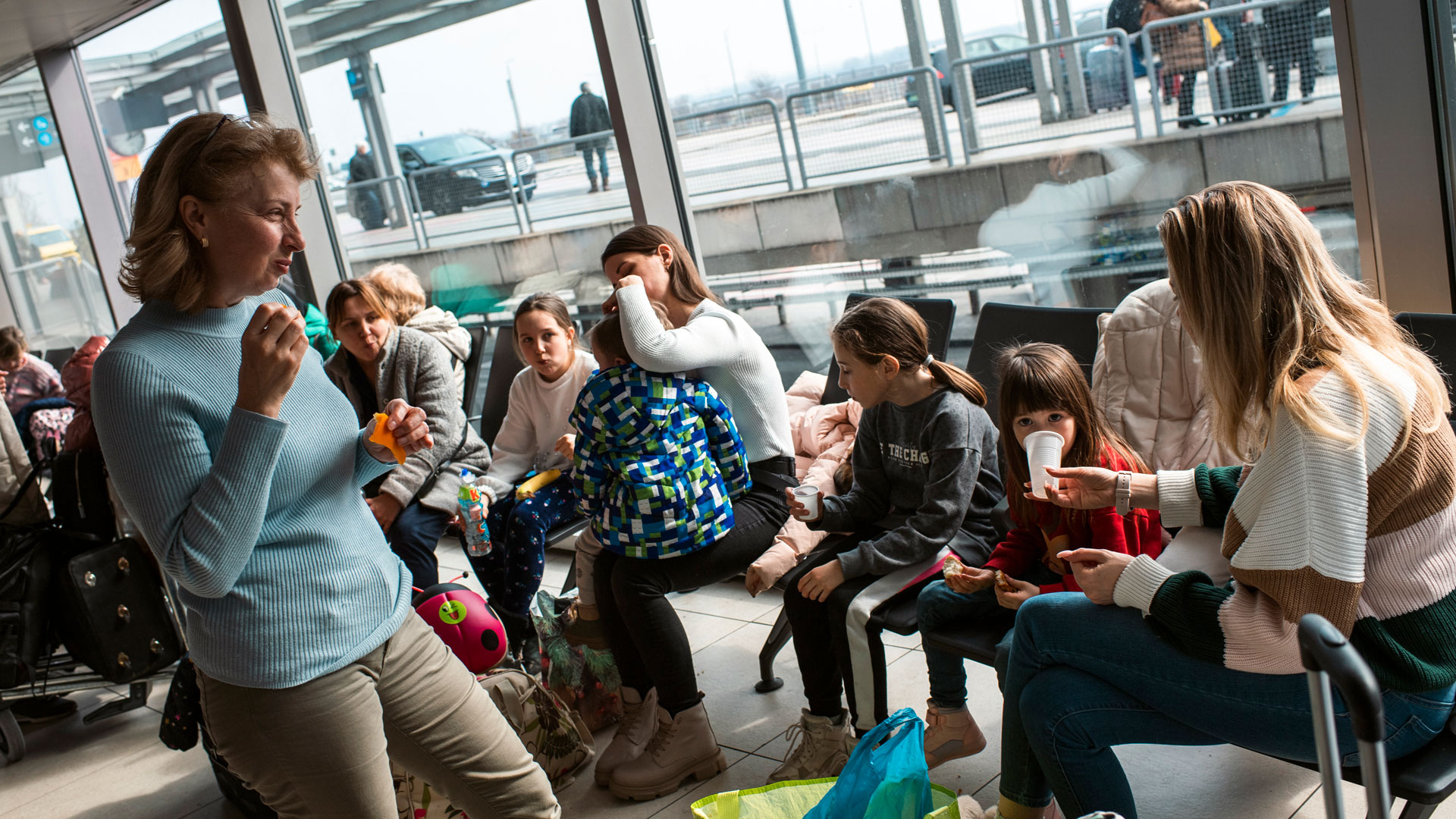
Escaping with nine children
A kindness of a friend meant Masha & her nine children could flee Zaporizhzhia, near the Crimean Peninsula.
The car they owned only had five seats, so her husband asked his friend for a minivan. His friend handed over the keys, no questions asked.
“As I was travelling I was crying. I was very upset. I was scared and afraid that something would happen on the way,” says Masha.
They packed pillows, blankets, documents & warm clothes as well as 3 violins for some of the musical children. One child had to leave their beloved piano behind.
When they finally arrived in Hungary Masha’s daughter, Alina (10) met a friend Emilia (3) at the aid post in Barabás where FCA’s partner, Hungarian Interchurch Aid distributed aid.
Alina brought one toy, her clothes and a colouring book with her. She gave the colouring book to another girl as they were on the journey, because the girl had no toys with her.
Fundraising begins
1 million euros within 4 days
Millions of Ukrainians are fleeing, often with nothing more than a small bag. FCA launches a fundraising campaign, raising 1 million euros within 4 days to provide refugees with emergency aid.
Families fleeing
In the first few days of the war, the United Nations refugee agency, the UNHCR, estimates that over half a million people cross borders into countries neighbouring Ukraine.
The first wave of refugees are mostly women with children. Exhausted and scared, the first stage is to give them urgent items, like food, warm clothing and shelter and, in many cases, psychosocial support.
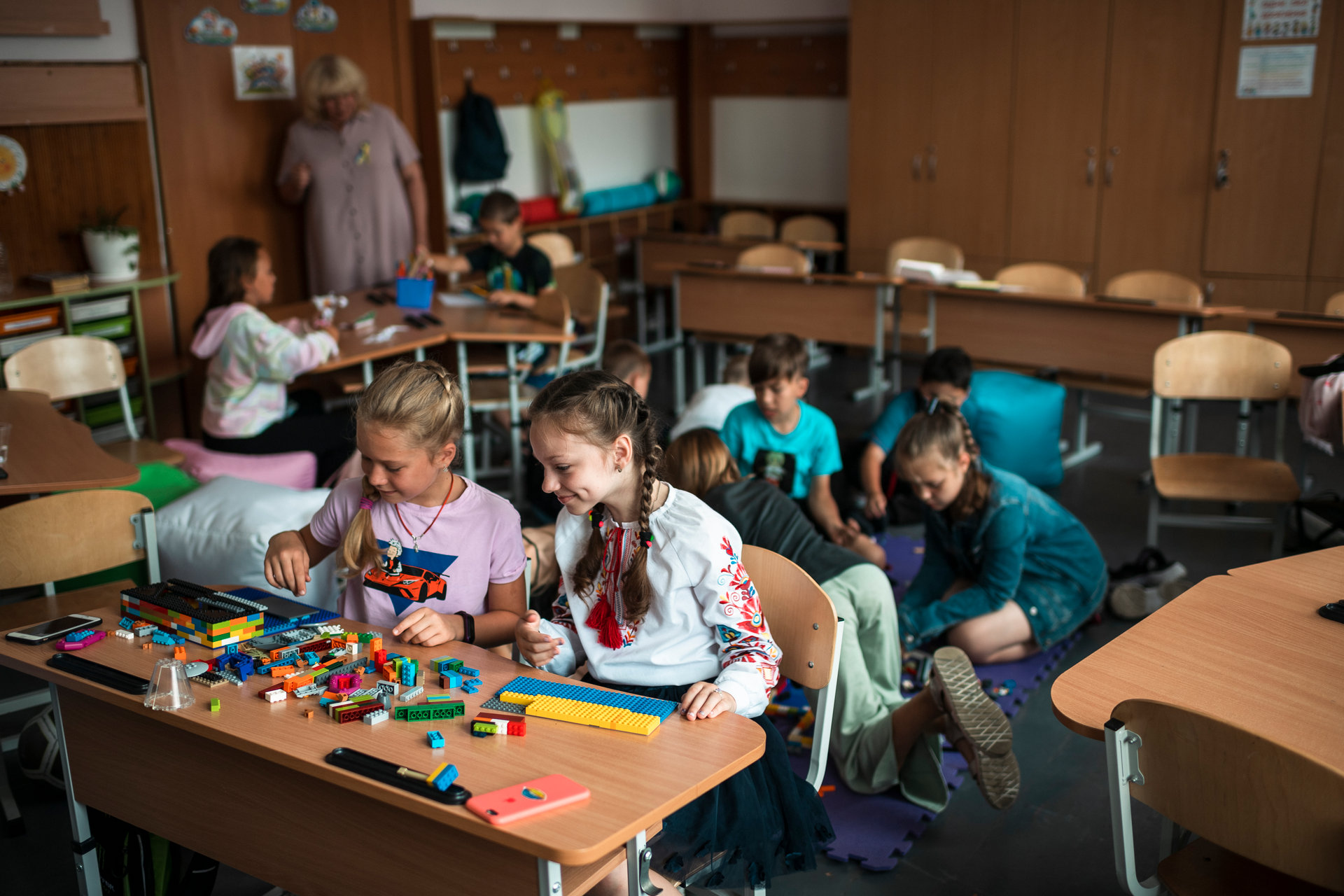
Refugee points
FCA’s partner, HIA, sets up refugee points wherever there is a high concentration of people.
In Budapest airport, parents can take a rest, while children play in specially constructed play areas.
“I have sweets and a bottle of water, and here’s my cat. In Ukraine, I had a real cat.”
3 million refugees
flee to the surrounding countries during the first month of war, 1.5 million of them children.
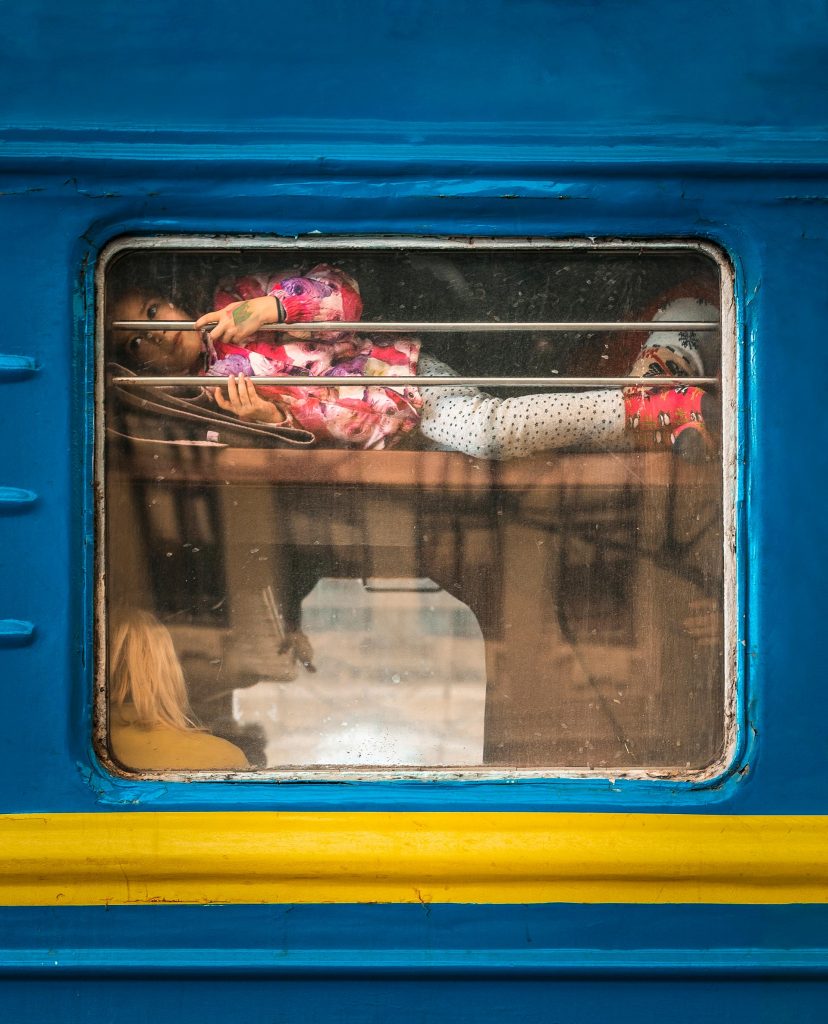
Eugene, Vitaly and their children were at hospital in Kharkiv when the bombings started. They were in the hospital because 10-month-old Ivor needs a heart operation. Now Ivor is in his father’s arms and cries out frequently.
Forced to leave the hospital in Kharkiv due to the increasingly intense bombings, their journey to Lviv took more than 24 hours. They came by train; children were sleeping at railway stations and on the floor of the train, they did not have anything to eat.
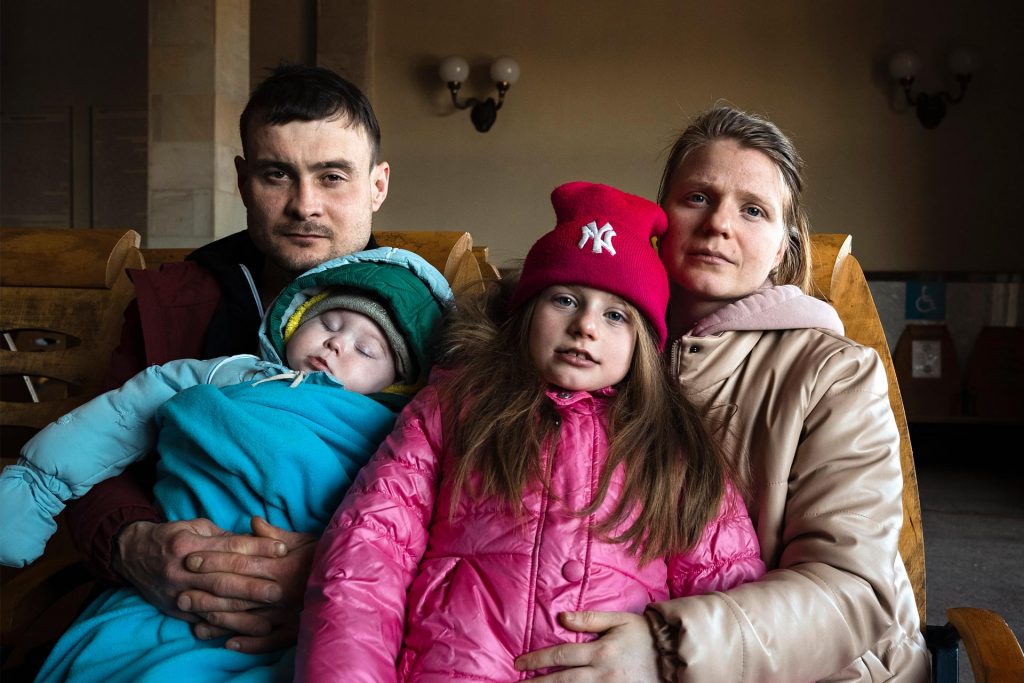

Phase 2 – sheltering
With fighting ongoing in the east with no sign of an end, Ukrainians often opt to shelter in the relative peace of the west. Locals open their homes and schools to their fellow countrymen, many volunteering long hours to welcome people, feed them, and make sure they have a safe, warm place to stay.
FCA SUPPORTS operations in Berehove and Lviv, the largest city in western Ukraine, providing temporary shelters for those who want to stay as well as continuing to help people on their onward journeys. Meanwhile, children are still not attending school, although some teachers are trying to provide remote learning opportunities.
The IOM estimates that there are around 8 million displaced people within Ukraine with humanitarian needs.
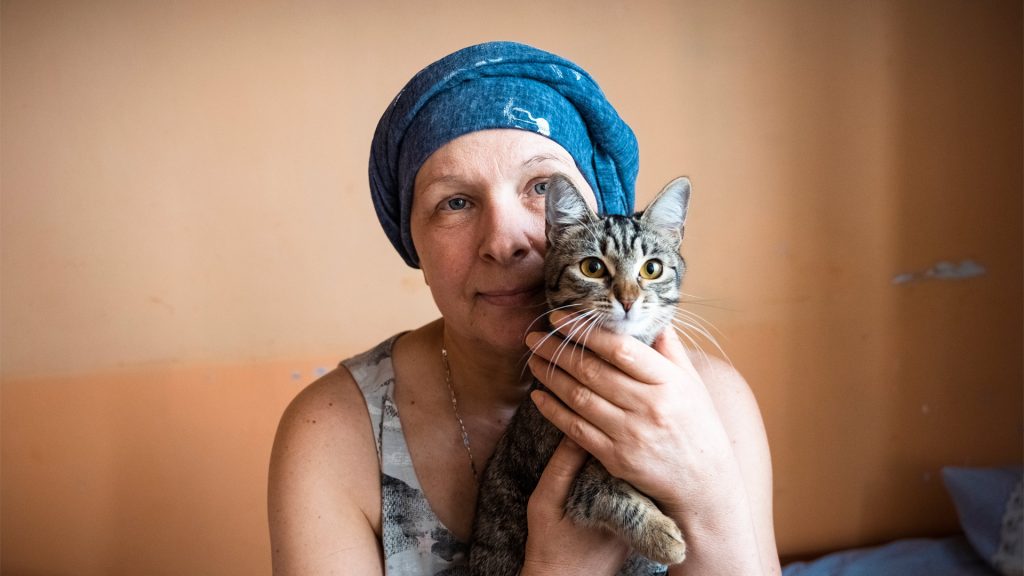
Larysa, her husband, daughter and the cat Bella escaped from Kharkiv on March 1, 2022. Before fleeing, they spent four nights in the basement to escape the bombing raids.
“Everyone wanted to travel out of Kharkiv. There were a lot of people at the train station. The train ride was free of charge, but getting on the train was difficult because of the crowds,” Larysa says.
Larysa has cancer. She received treatment in Kharkiv, but the hospital was destroyed in the bombings. She hopes to get treatment for her illness in Hungary. Now Larysa and her family are staying in a refugee shelter in Berehove, western Ukraine.
“We are happy to have a place to sleep where it’s warm. We get food three times a day, we can wash and do our laundry, because there is also a washing machine here.”
Two weeks later FCA visited the same shelter and heard that Larysa was finally getting treatment in a Ukrainian hospital in the west of the country.
A warm welcome
In the outskirts of Lviv, Viktoria (14), Maria (9) and Ivan (3) have just arrived at a shelter with mother Katerina and grandmother Svetlana.
Maria will have her 9th birthday in two days. The family left their hometown of Malyn because of the war. When the war started, the family waited, thinking it might finish soon. But when they started to hear bombs, they packed their bags and left their home.
The family was told that there were buses that could take them to Lviv and Poland. However, they did not want to cross the border to Poland and decided to stay in Lviv instead.
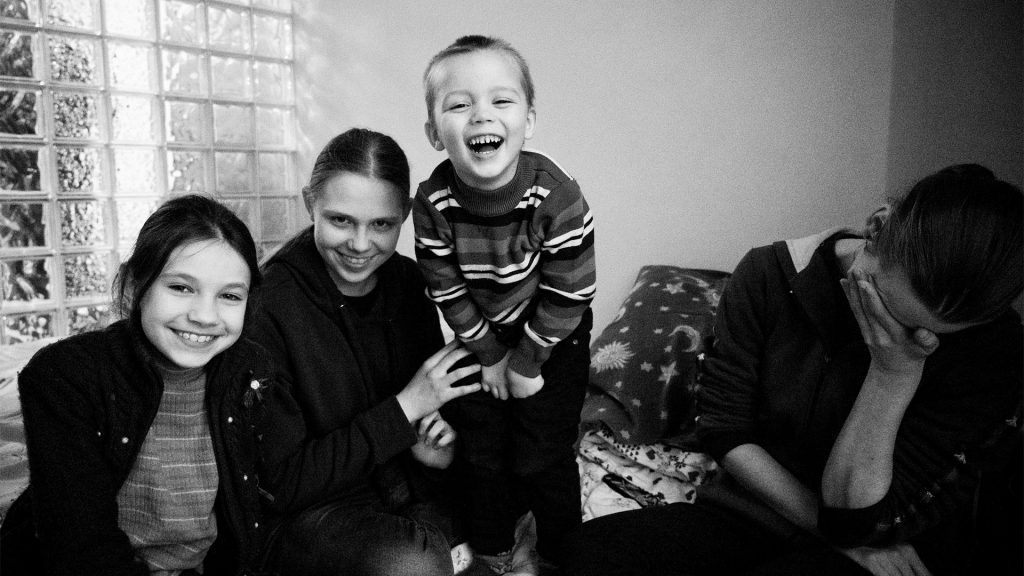
“We are incredibly happy and thankful to be here. We were welcomed in the shelter,” says Katerina.
They left the rest of the family behind, so they want to get back to their home as soon as possible. Both Katerina’s and Svetlana’s husbands are fighting in the war.
8 million displaced people
within Ukraine with humanitarian needs.
676 metric tons
of assistance delivered by summer 2022.
100,000 people
reached by our operations.

Phase 3 – coming back
While fighting continues in the south and east of the country, some places are safe enough to return. Many buildings are destroyed and electricity is unstable. The threat of air raids still looms. FCA’s operations evolve into the next stage – bringing teachers and children back to school and restoring a sense of normality after a long period of upheaval and trauma. With EU funding, we lead a €14 million consortium to restore formal education to 45,299 children.
A taste of normality
In the summer of 2022, FCA organises several summer clubs for children, where they could play together and take part in activities. For kids and parents, it’s a small taste of normality.
Tanya Slautina and her husband Andzey are from Chernihiv where 60 per cent of the city’s 285,000 inhabitants fled to other parts of Ukraine.
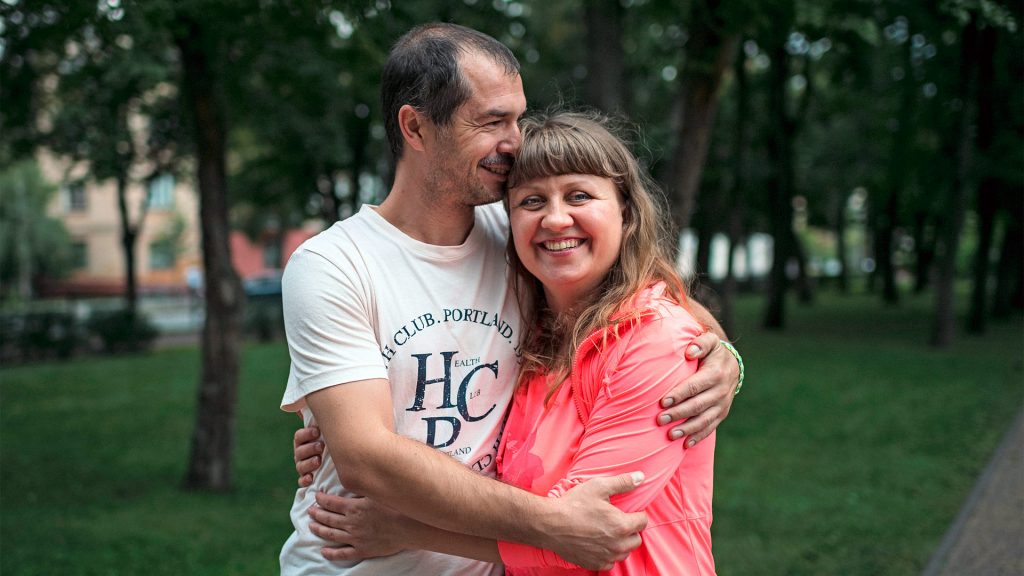
“War has touched every aspect of our lives. The worst months in Chernihiv we were isolated in our home. Fear, explosions and panic were our daily companions. Fortunately our children did not see anyone dying, but they were quiet and sullen. All we could think about was survival.
Our home is OK, but others were not so lucky. We organised a collection of clothes and other necessary items to help other families. Before the attack I worked as a bank clerk, but I left my job to be able to help my children and our community. The stress and fear brought us closer together.
We all need help with our children, and the summer clubs are a huge relief for us parents, too. Our children Anastasiya, 6, Valeziya, 10, and Maksim, 12, have been going to FCA’s summer clubs for six weeks.”
Teachers play an important role
FCA’s education response for Ukraine emphasises teacher training and support. Without quality teachers, there is no quality education.
In a context like Ukraine, where war is ongoing, teachers need special training and mentoring to be able to assist their students, but also to cope with their own needs.
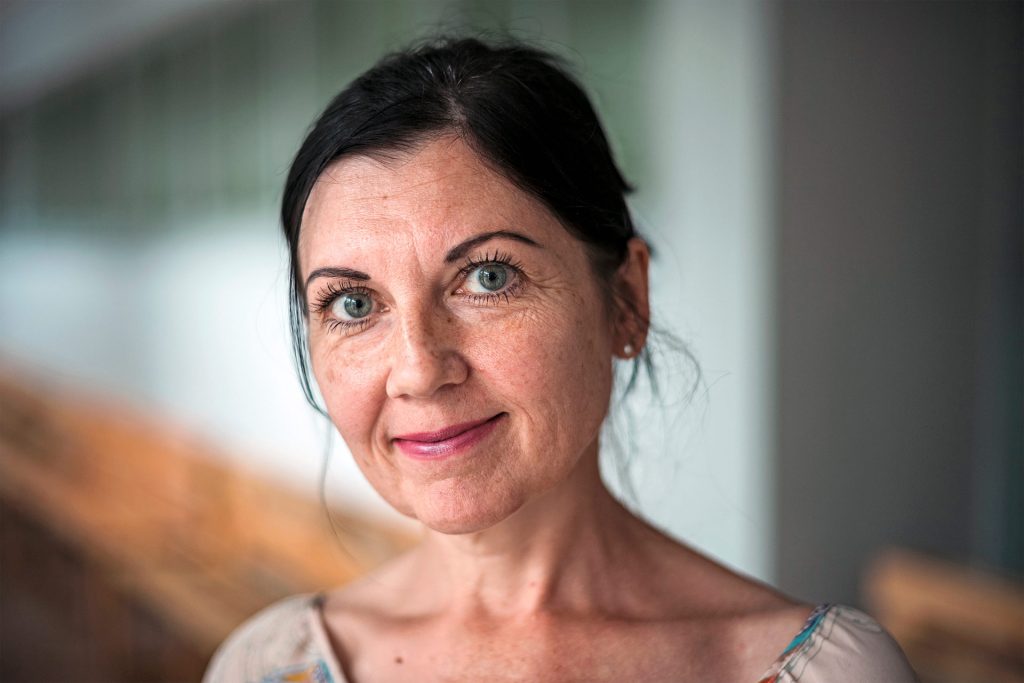
“Many have lost trust in the world”
Zhanna Kudina is a psychologist and teacher in Chernihiv.
“The war has caused a great deal of stress in children and young people. Some have had to endure exhausting journeys to escape, others have lost loved ones or seen things children should never have to see. The most typical symptoms include lack of appetite, sleep disorders and difficulty concentrating.
In summer clubs, we have used various therapeutic tools, such as arts and crafts. At first, drawings were very dark-coloured, with soldiers, guns and missiles. Over the weeks, more colour, sunshine and flowers began to appear. Many have lost trust in the world, and with the clubs we try to provide them with a place where they can feel safe.
As a psychologist, I know that support should be offered urgently after a traumatic event. The longer children and young people have to wait, the more difficult it becomes to deal with the mental scars. But I am hopeful, because I am here now, doing something for them, and because we have received a huge amount of support from Finn Church Aid. We are deeply grateful for that.”
Psychosocial support to 4,590 children
FCA leads a project to provide children with psychosocial support services.
Training for 905 teachers
to provide specialist support to children suffering from trauma.
5,872 students
participated and benefitted from FCA’s summer club activities.

Phase 4 – preparing for the winter
The war enters a new phase, where attacks on critical infrastructure are common. The lack of heating makes learning in schools already difficult, and that’s coupled with the almost daily air raid alerts.
THE FREQUENT power cuts also make it hard for students to learn remotely, either at home or in different cities. FCA and partners respond by providing winterisation kits to families and starting work to make mandatory bomb shelters in schools suitable to continue learning in, even during an air raid alert.
FCA teams prepare to replace windows and make bomb shelters suitable for learning.
We went back to see Ruslana, a teacher in Chernihiv, Ukraine who received psychosocial training from us during the summer.
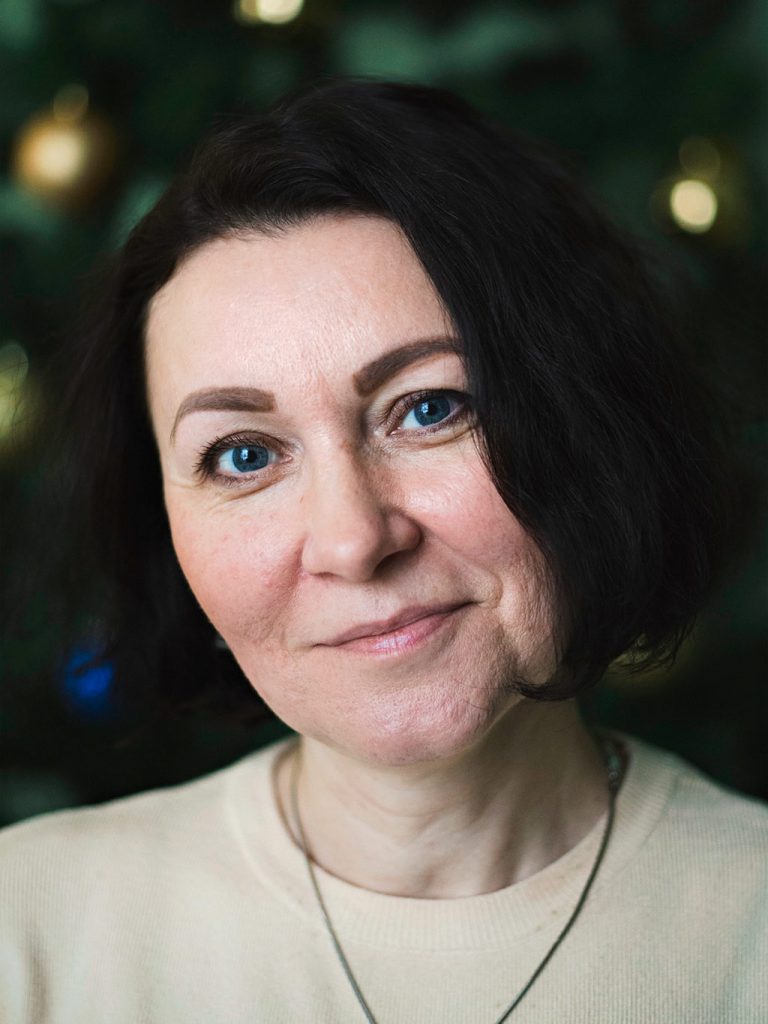
“Everyday is a challenge. The war has had an influence on every aspect of our lives, our daily routines. Now we are planning how we could organize the teaching in shelters as we spend quite a lot of time there depending on the week.”
Children seem to be quite flexible when it comes to psychosocial wellbeing. However, you never know what triggers them. It might be an air raid, the sound of a siren. Some of them start crying. Some of them just stay still. Of course, some of the students stay positive, but some of them are really pessimistic and in despair.
The new methods and psychosocial support skills we learnt have supported us during this autumn. Many of our teachers are using those methods on a regular basis here at school.”
“This has been a life lesson”
We also revisit Zhanna, who explains that, after so many months of war, she and her colleagues are doing their best to overcome the anxiety syndrome and stress many children are currently experiencing.
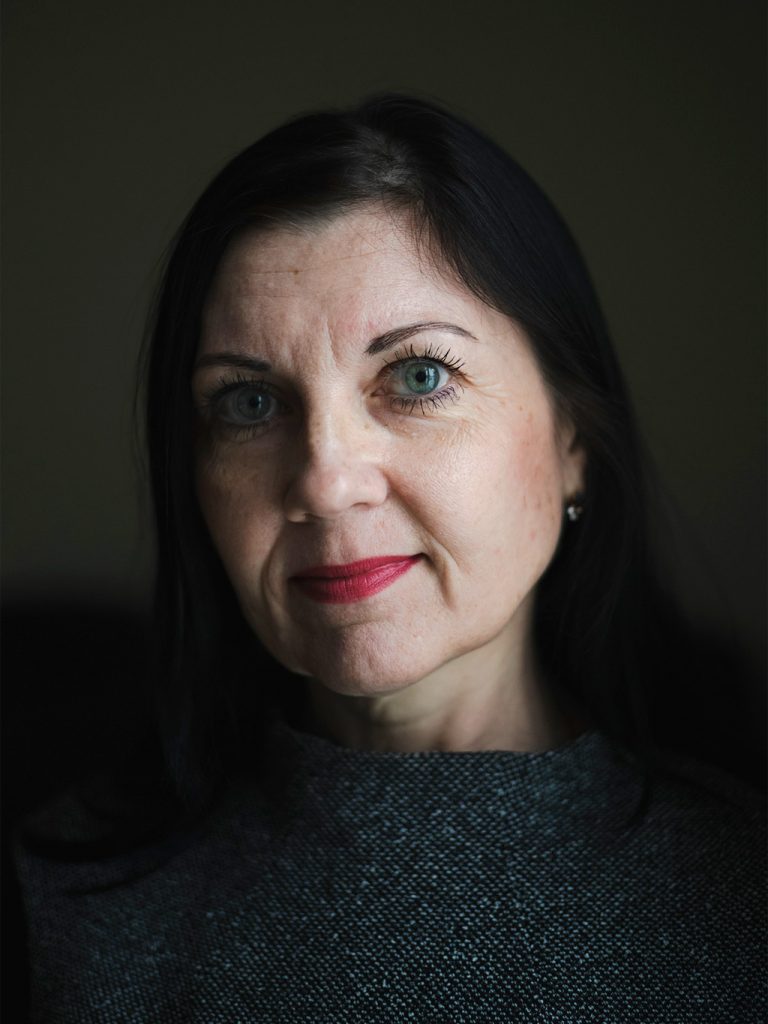
According to Zhanna, approximately 30 % of students show signs of stress syndrome. They show symptoms like anxiety, loss of appetite, bad sleeping, and screaming while having nightmares.
She explains that during the Russian military presence in the region, three students of her school lost their lives. Some students experienced violence and oppression.
One of the school shelters has been organized as a psychosocial hub for children. It is a safe place where children participate for example in art therapy and learn relaxing breathing techniques.
When asked about her thoughts on the future, Kudina says that she hopes for the best and peace. “This all has been a kind of a lesson to us by life. It has developed our survival skills, the skills with which we can live this over. We should somehow try to program ourselves for the best. Positive thinking will bring a positive future.”
Children spend Christmas without their fathers
Many families will spend this year with fathers, brothers and uncles at the frontline or never coming back from the war. FCA supports 71 children in Chernihiv with Christmas gifts and activities.
Oleh (11) and Polina (13) both lost their fathers in the war. Both students are learning online, despite power cuts.
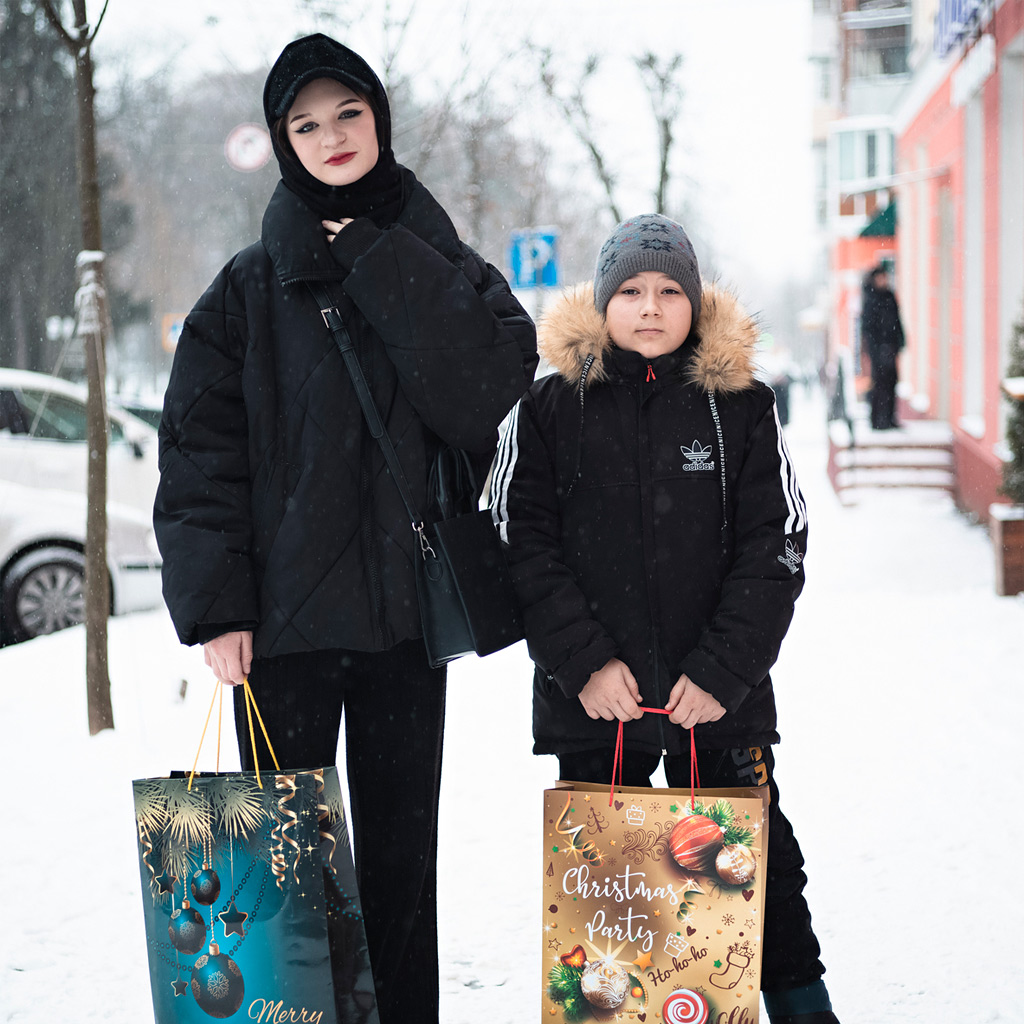
Says Polina, “I love drawing and have been doing arts for eight years. I like online learning, because it’s safer and the teacher can give you specific attention.”
“My family is the best family in the world. We have some Christmas traditions, such as decorating the Christmas tree on the 24th of December. This year it will just be me, my mother, grandmother and my brother.”
Schools destroyed
Schools, as well as hospitals and critical infrastructure have all suffered intense damage. For Ukraine’s young people, it’s been a disorientating and distressing year.
Since September 2022, the 1,200 students of Lyceum Number 25 in Zhytomyr have been studying in temporary learning spaces.
3,098 education institutions
have suffered bombing, FCA will support the rehabilitation of 147 schools.
71 children
in Chernihiv supported by FCA in 2022 with Christmas gifts and activities.
31,100 learner kits
will be distributed to children in need in the project locations.
at their destroyed school in Zhytomyr, Ukraine.

Phase 5 – looking to the future
As the country reaches one year at war, Ukraine’s children must return to school. FCA leads a multi-million euro set of programmes to make sure teachers and students have everything they need to learn safely, in comfort and flexibly.
The New Year brings families back together
In Ukraine, the New Year is celebrated between the 13th and 14th of January. Many families celebrate, with some male family members being able to return for a few days to join their families.
The event provides a moment of reflection on the year’s events with hope for the future.
FCA staff spent the New Year with a Ukrainian family.
Children return to schools
After months of online learning, often interrupted by power outages, children have the chance to come back to the classroom.
With EU-funded FCA support, schools are rehabilitated with improved facilities, like reinforced windows and specially equipped bomb shelters, where kids can continue learning even during air raid alerts.
FCA also works to develop school curriculums, in order to make learning as flexible as possible, so that children can have access to education wherever they are.
Funded by the EU, FCA gives children kits with school materials so they can keep learning remotely.
Ukrainians join FCA Staff
There are now over 20 professionals working in FCA’s Ukraine country office and most of them are locals like Marianna Zhurbenko.
Marianna remembers how on February 24, 2022 she stared in disbelief at the sky from the window of her own home in Gostomel, west of Kyiv.
Helicopters buzzed in the sky and the phone rang non-stop. Friends called in distress and told Marianna and her family to flee. The war had started suddenly, and the front line was only 500 meters from Marianna’s home.

In the evening, the uproar of artillery fire began, and that’s when Marianna and her husband decided to leave. They packed the family’s 9-year-old son, a six-month-old baby and a dog into the car and set off first for Kiev and then for western Ukraine. Marianna and the boys lived there for the next months.
Marianna stayed awake a lot and listened to her elder son’s crying at night. Fortunately, the youngest didn’t understand anything about the situation.
“Random families took us in to live with them. We tried to offer them payment for the water and electricity we used, but they refused to accept it,” says Marianna and describes how the war has united Ukrainians. She would also open the door to foreign families if such a situation came up again.
“The war has changed my own values. I realized that material don’t matter. Life, health, family relationships and love became important values for me.”
In May, it became clear that although her former workplace had not been destroyed in the war, all the workers had fled elsewhere and were not going to return.
In June 2022, Marianna started as a logistics coordinator at Finn Church Aid. She is responsible for procurement and that supplies going to FCA-supported schools find their destination.
“I was an IDP, and I know how people feel. I love being able to help children. I like myself doing this job,” says Marianna.
3 oblasts
Kyiv, Chernihiv and Zhytomyr.
21 staff
Programs, finance,
operations and support.
2 offices
Head office in Kyiv, field office in Chernihiv.
Learning continues in bomb shelters
Nowadays, a functioning Ukrainian school must have a functioning bomb shelter, because there can sometimes be several air raid alerts per day.
FCA equips school bomb shelters so that everyday life can continue in them as normally as possible even during an air raid alert.
The future of children and youth cannot be put on hold
Although fighting continues, children can’t wait to go back to school.
FCA leads a €14 million EU funded consortium with Save The Children, People in Need and War Child Holland to repair and upgrade schools, provide children with learning kits and train teachers in a new more flexible curriculum.
- Schools will be equipped with learning spaces that also act as bomb shelters, special reinforced windows and flexible learning spaces.
- Children will be supported with psychosocial services and teachers will be trained and mentored to provide these.
- FCA also works with local partners savED, GoGlobal and DOCCU to assess damage and work with local authorities.
Find out more about our work on the Ukraine country page.
